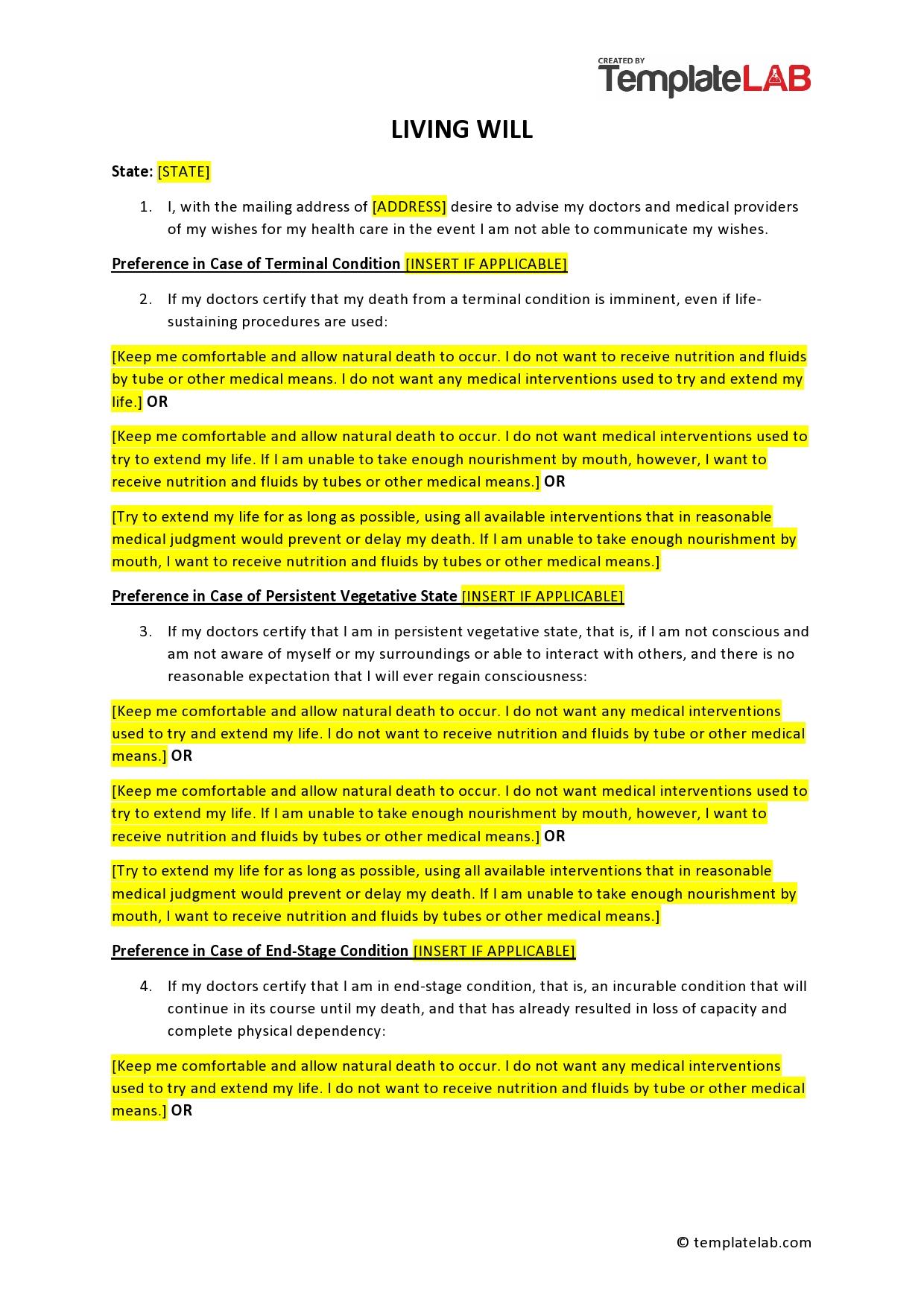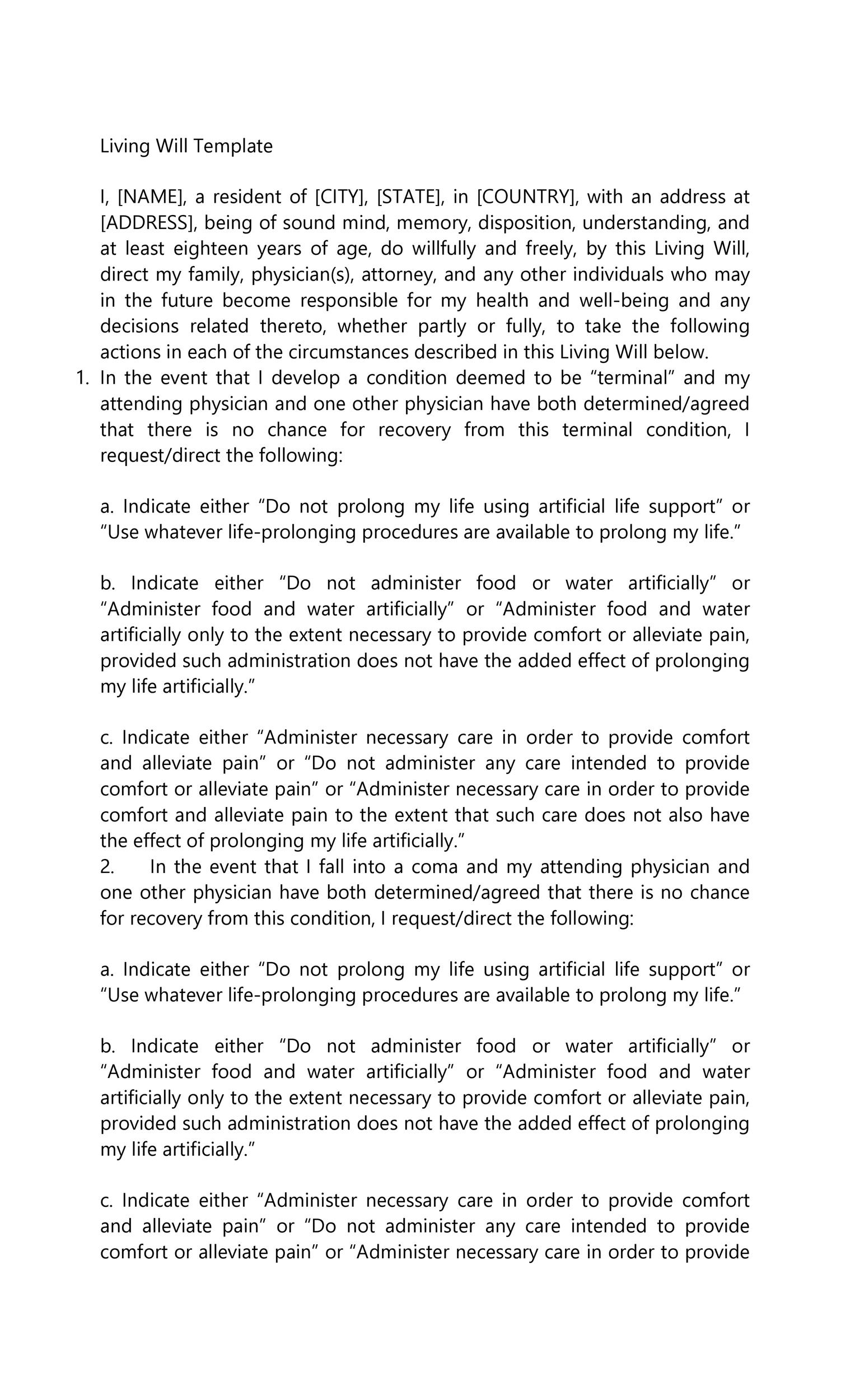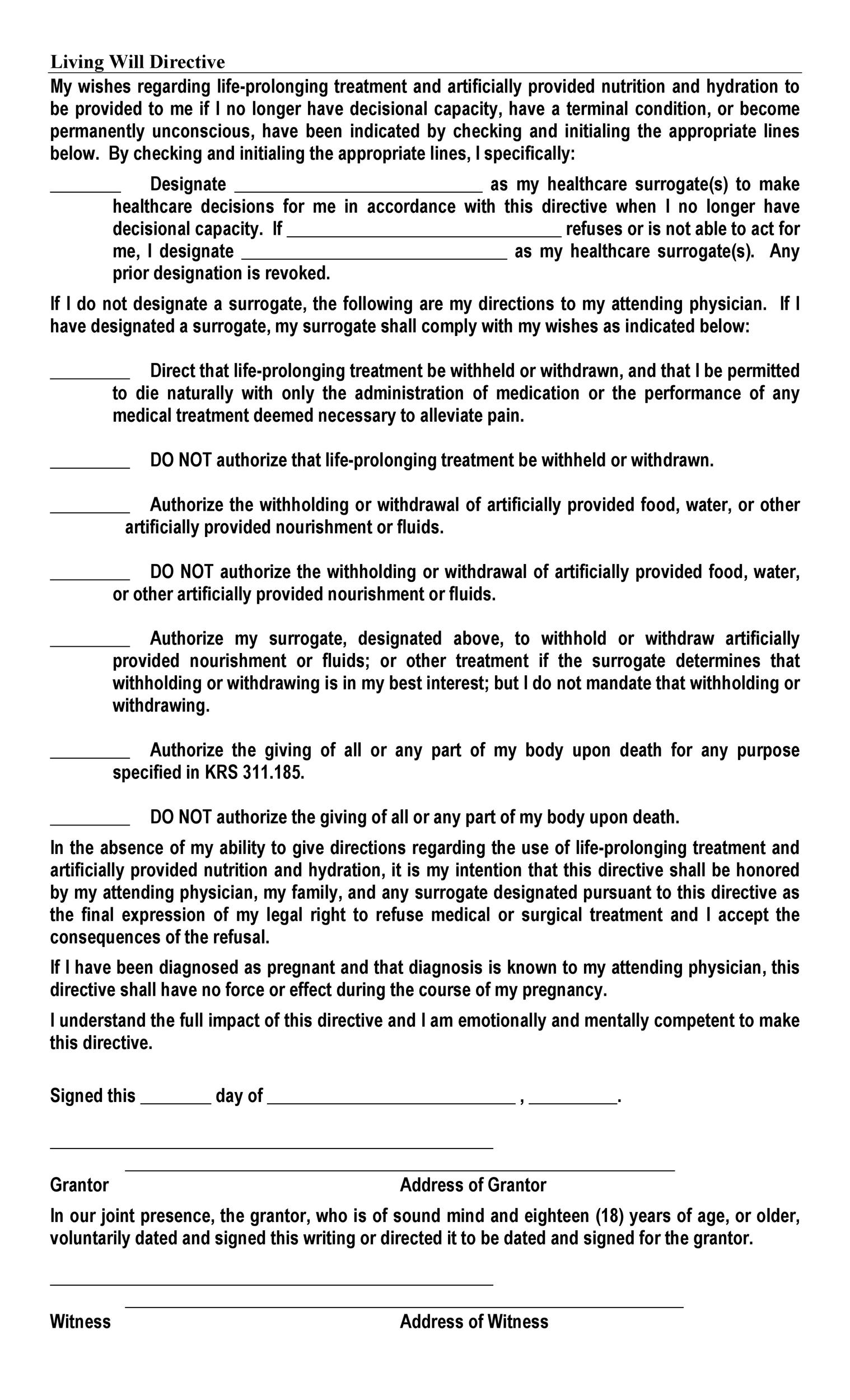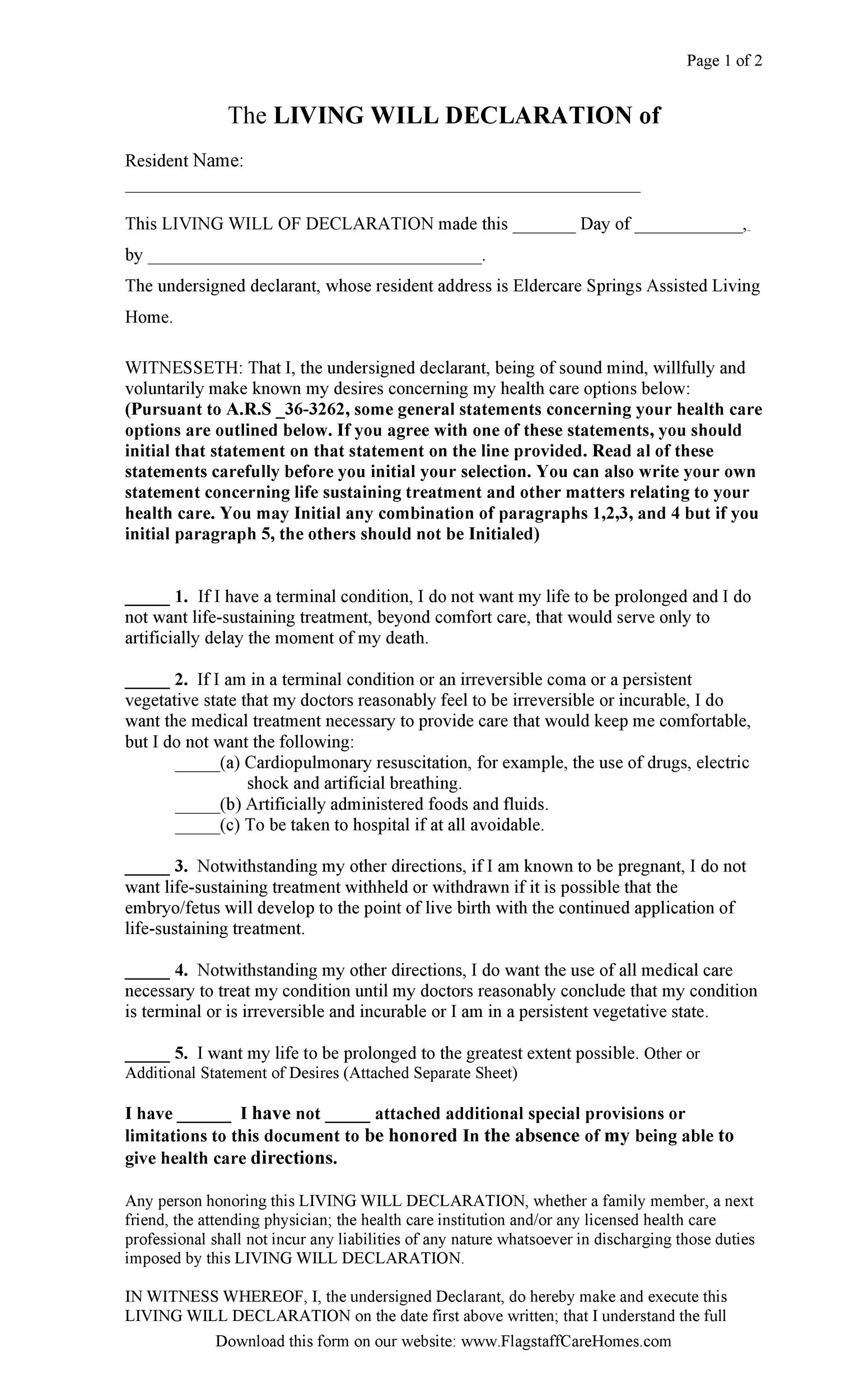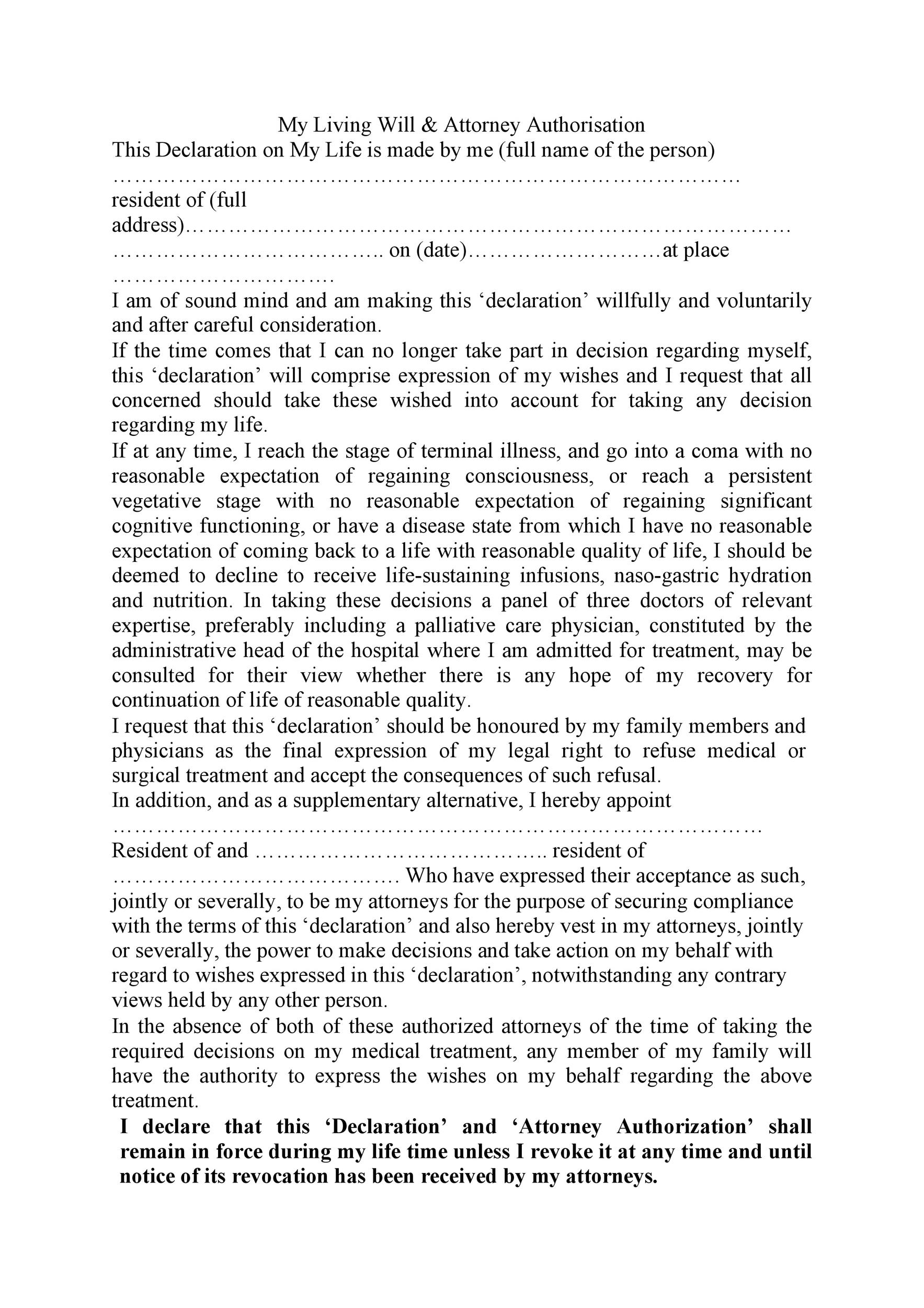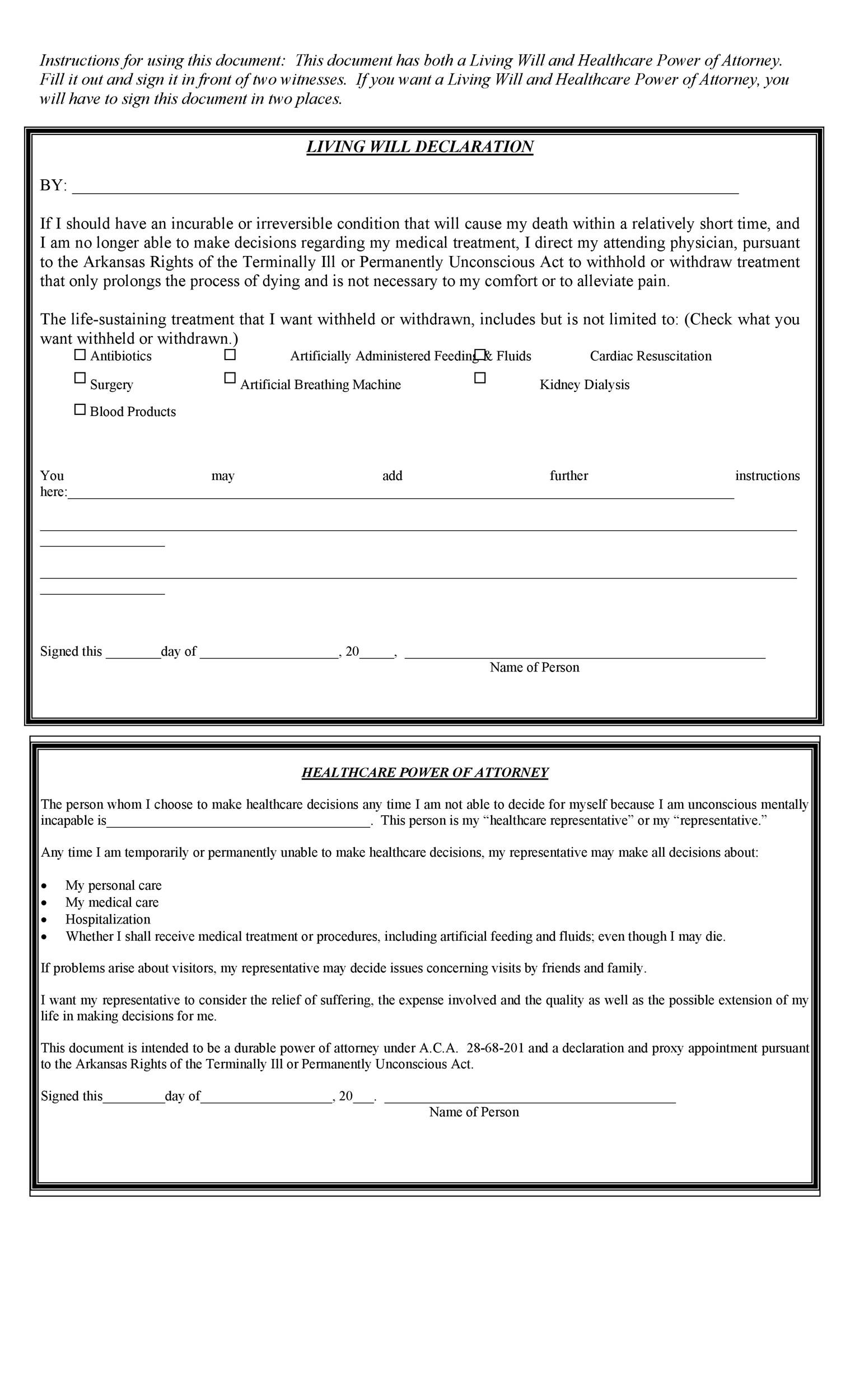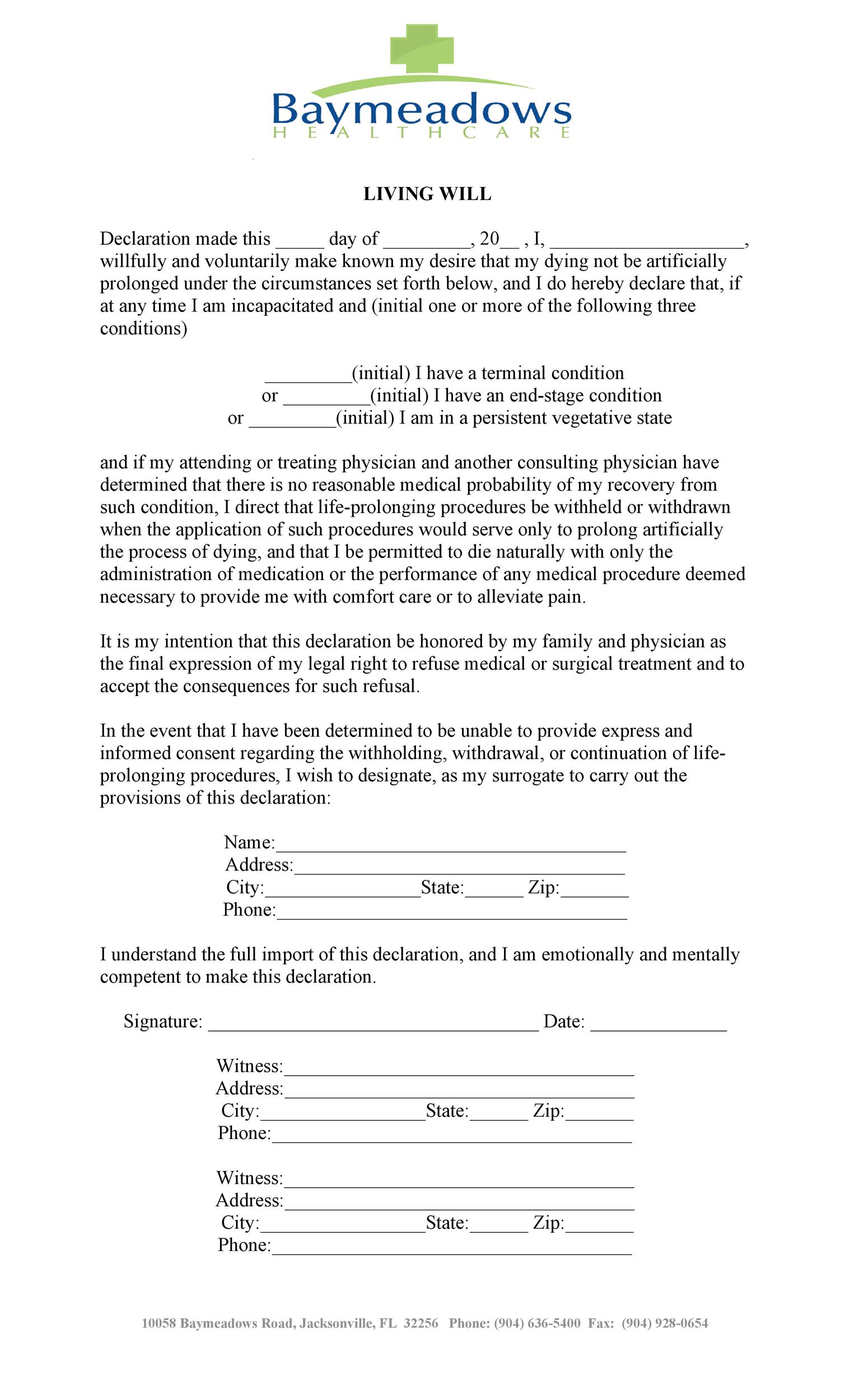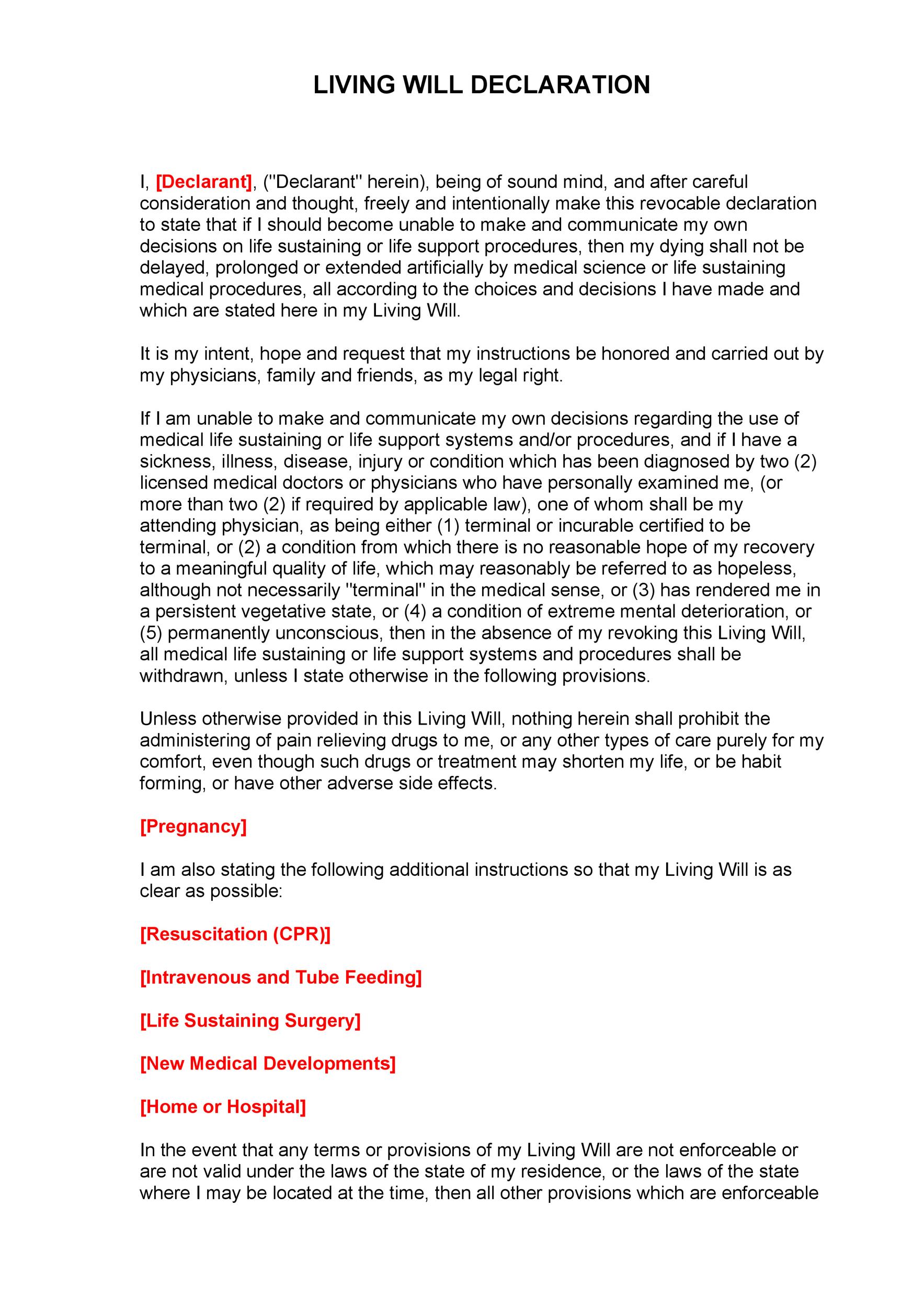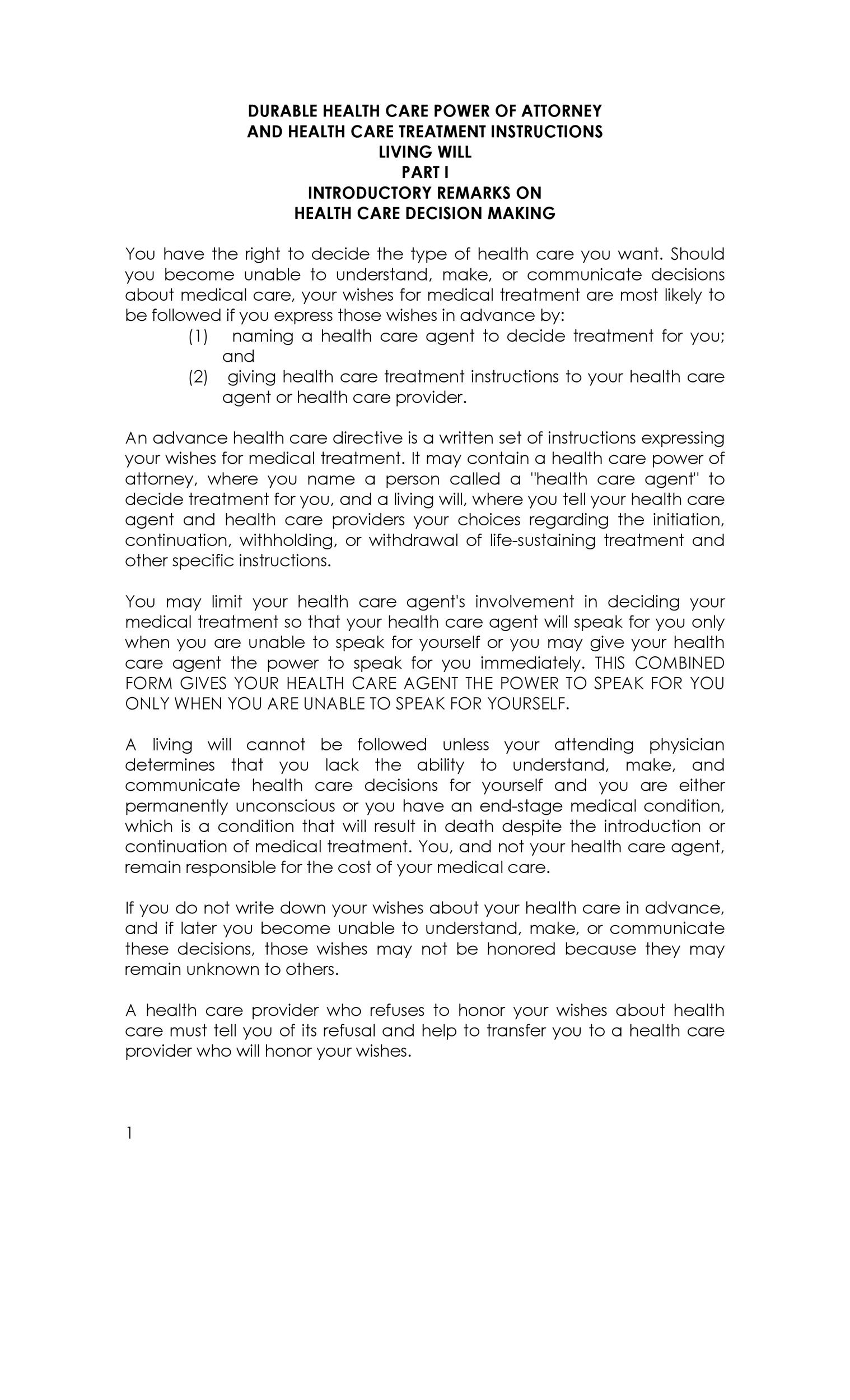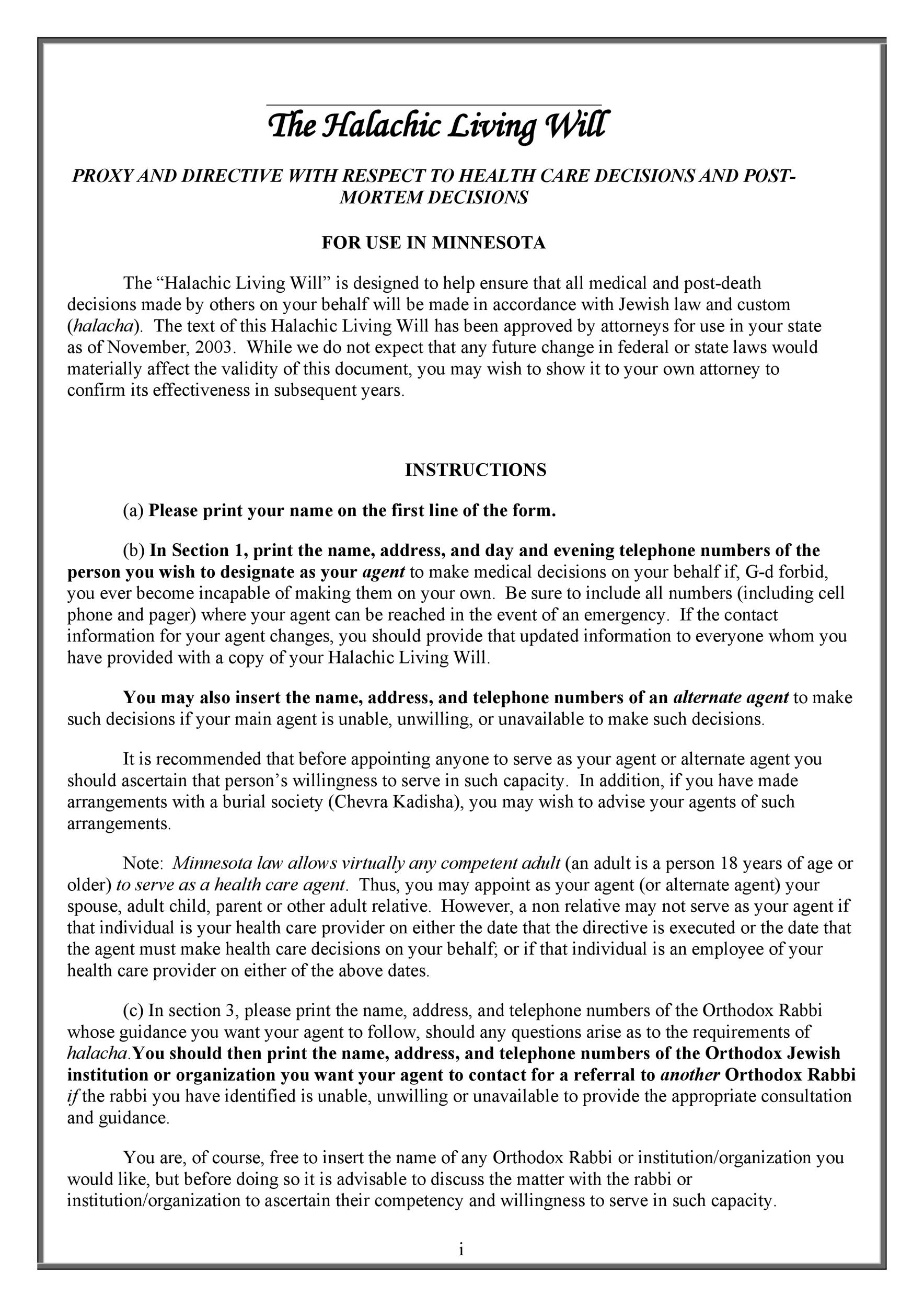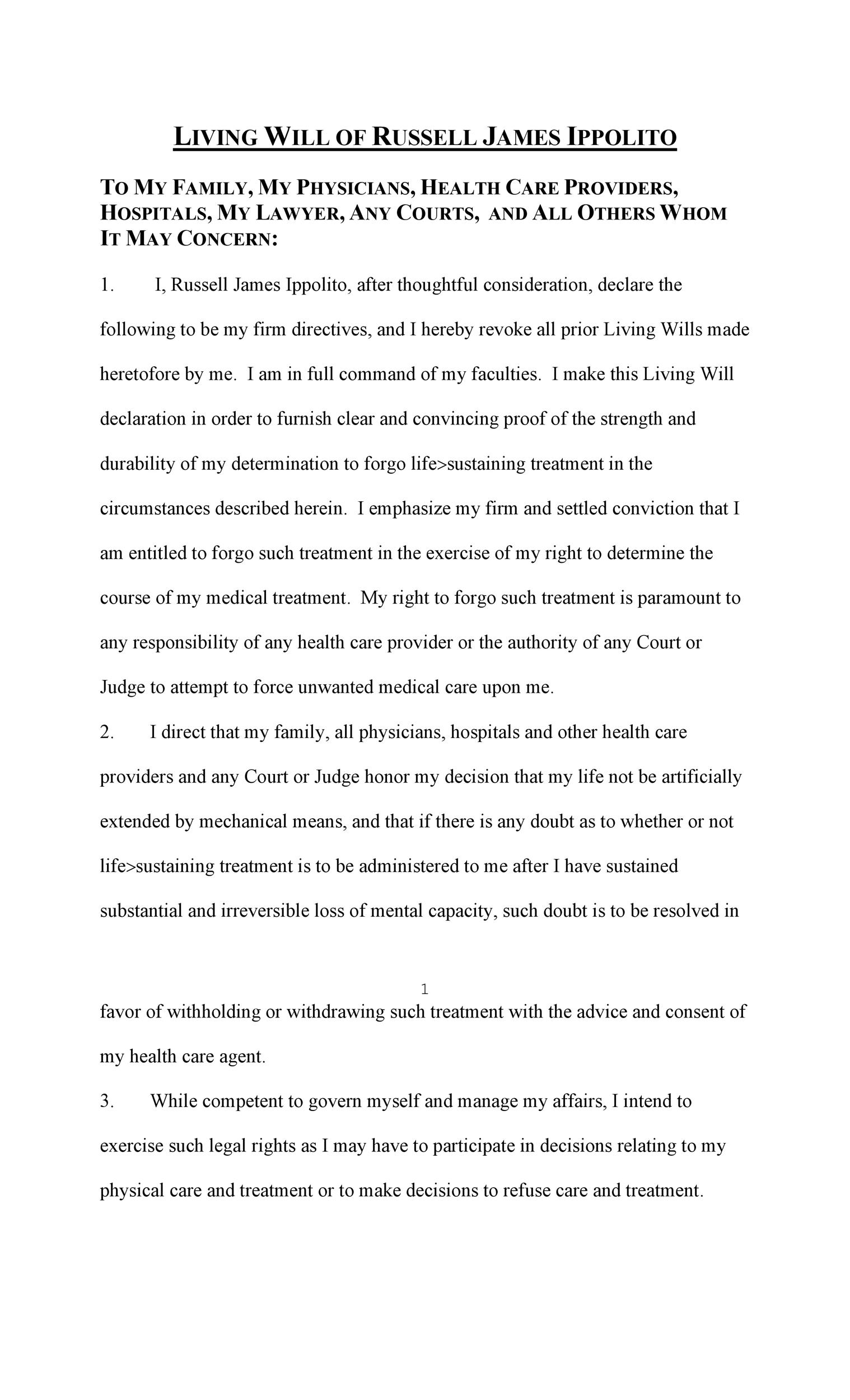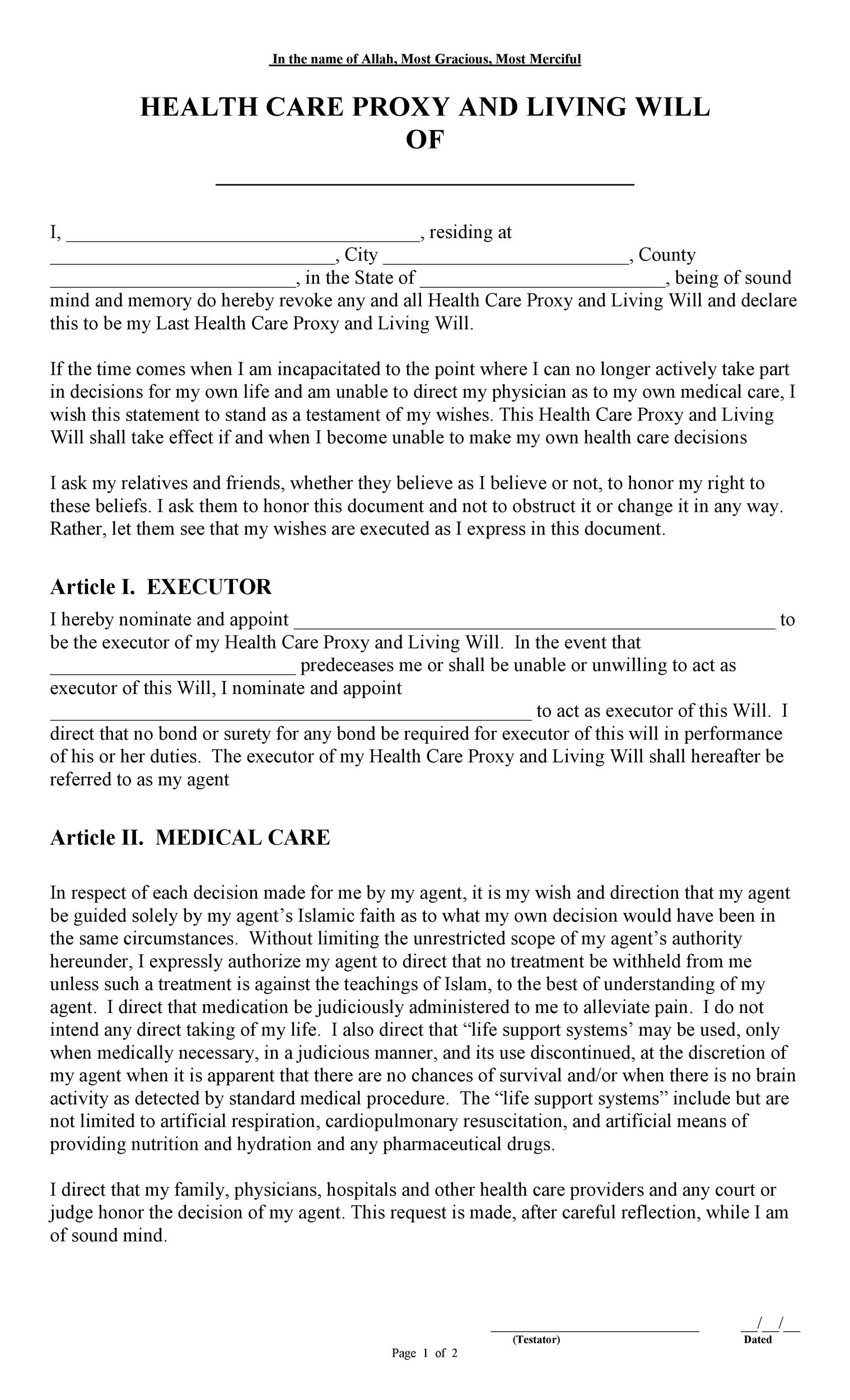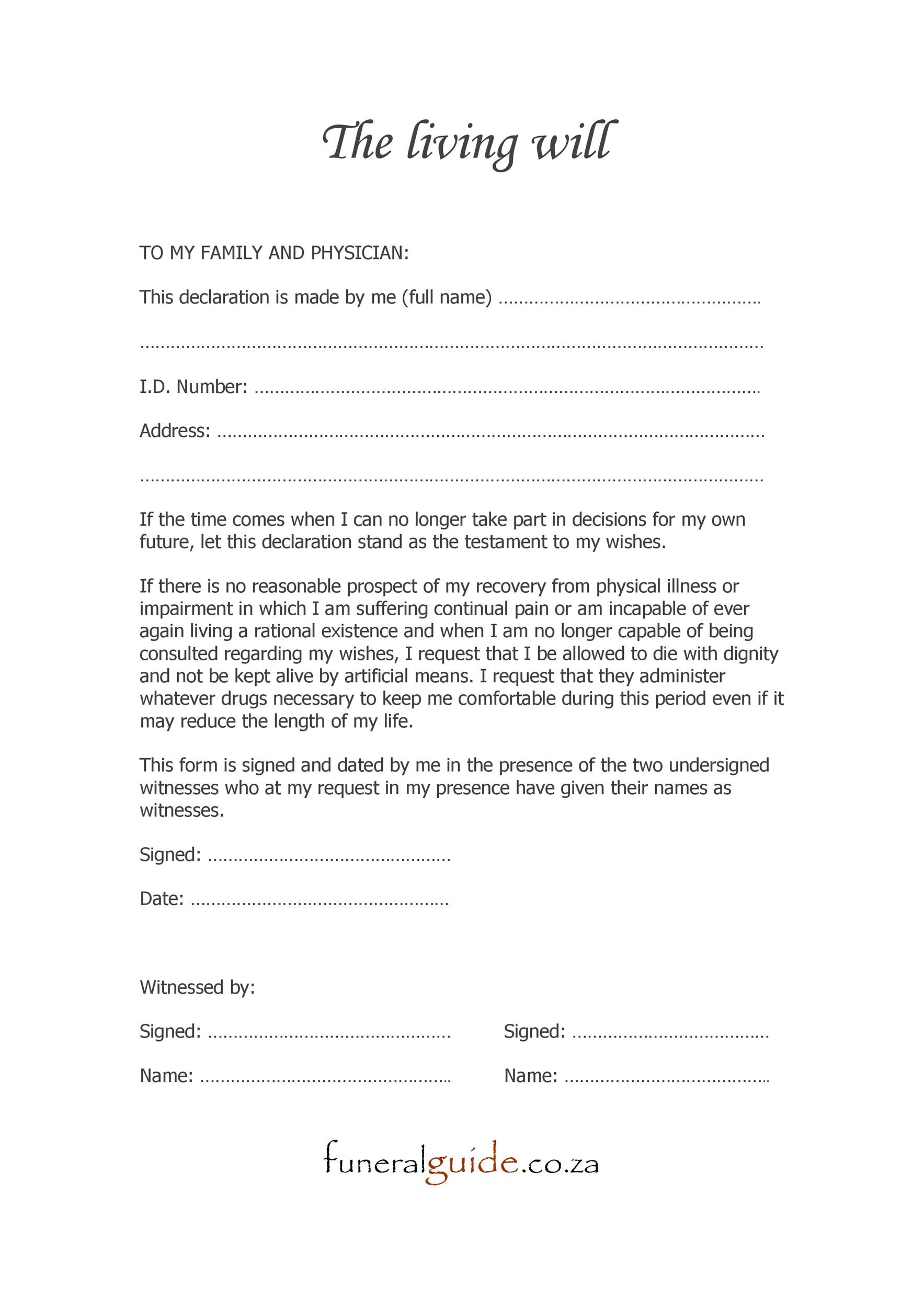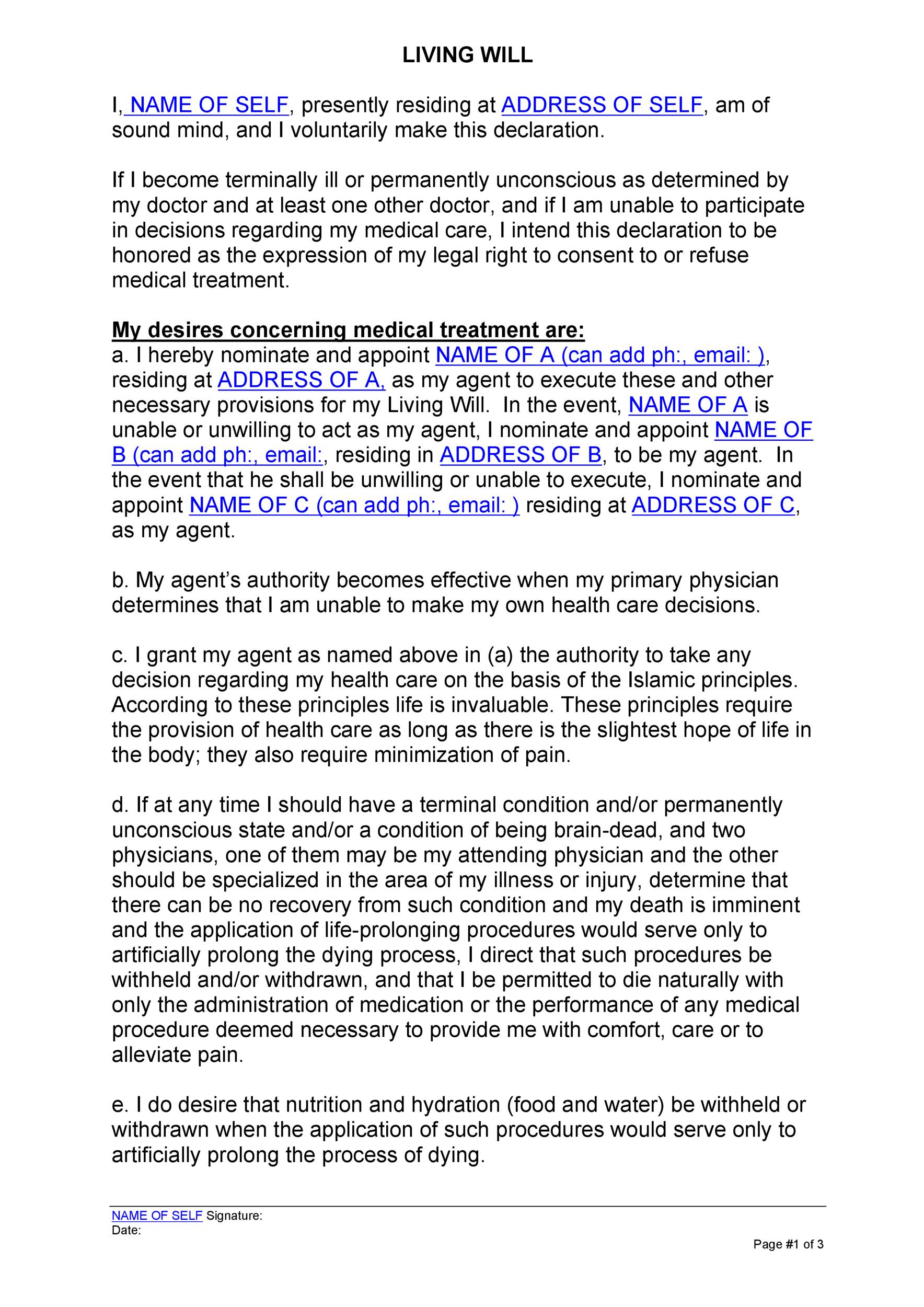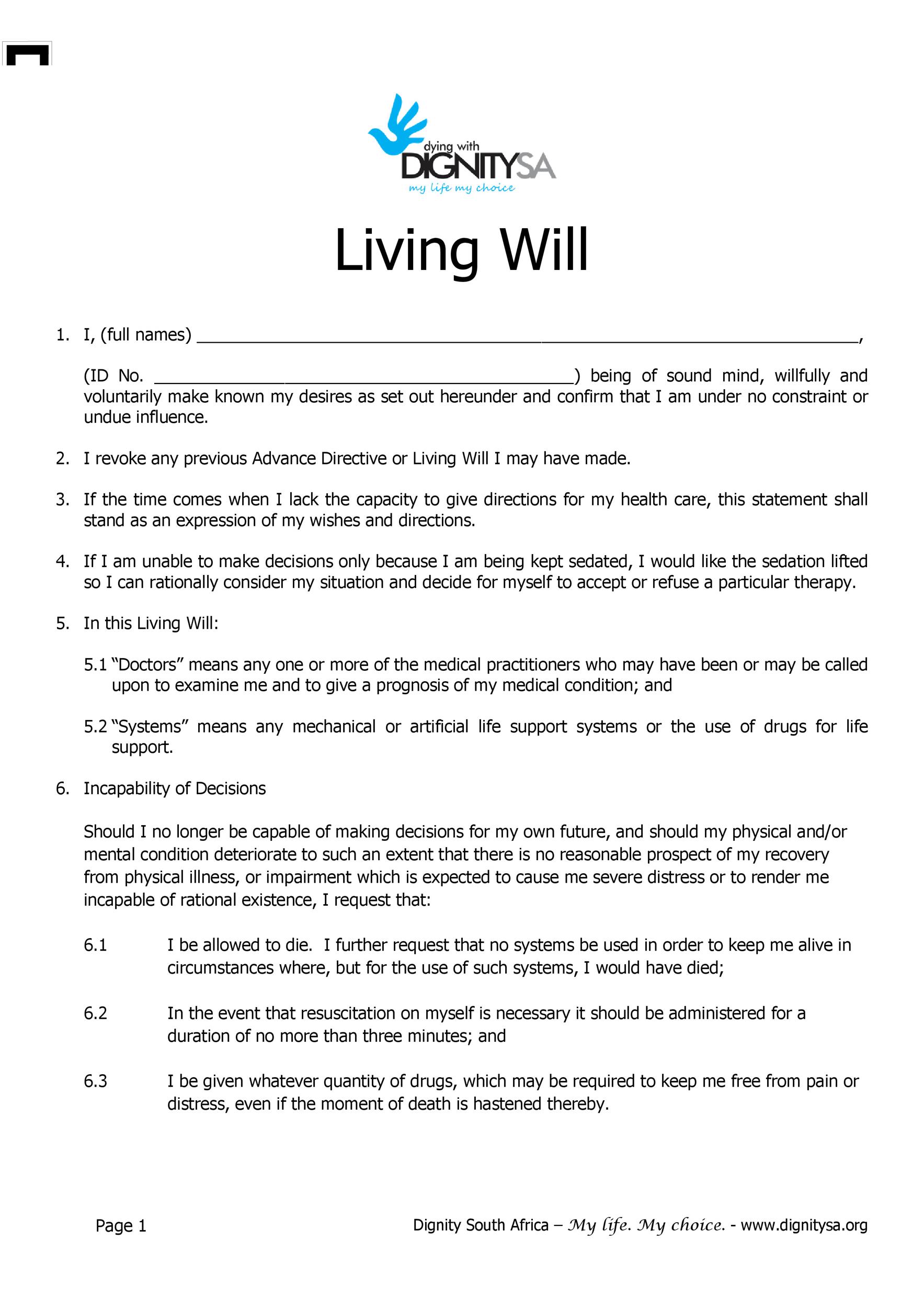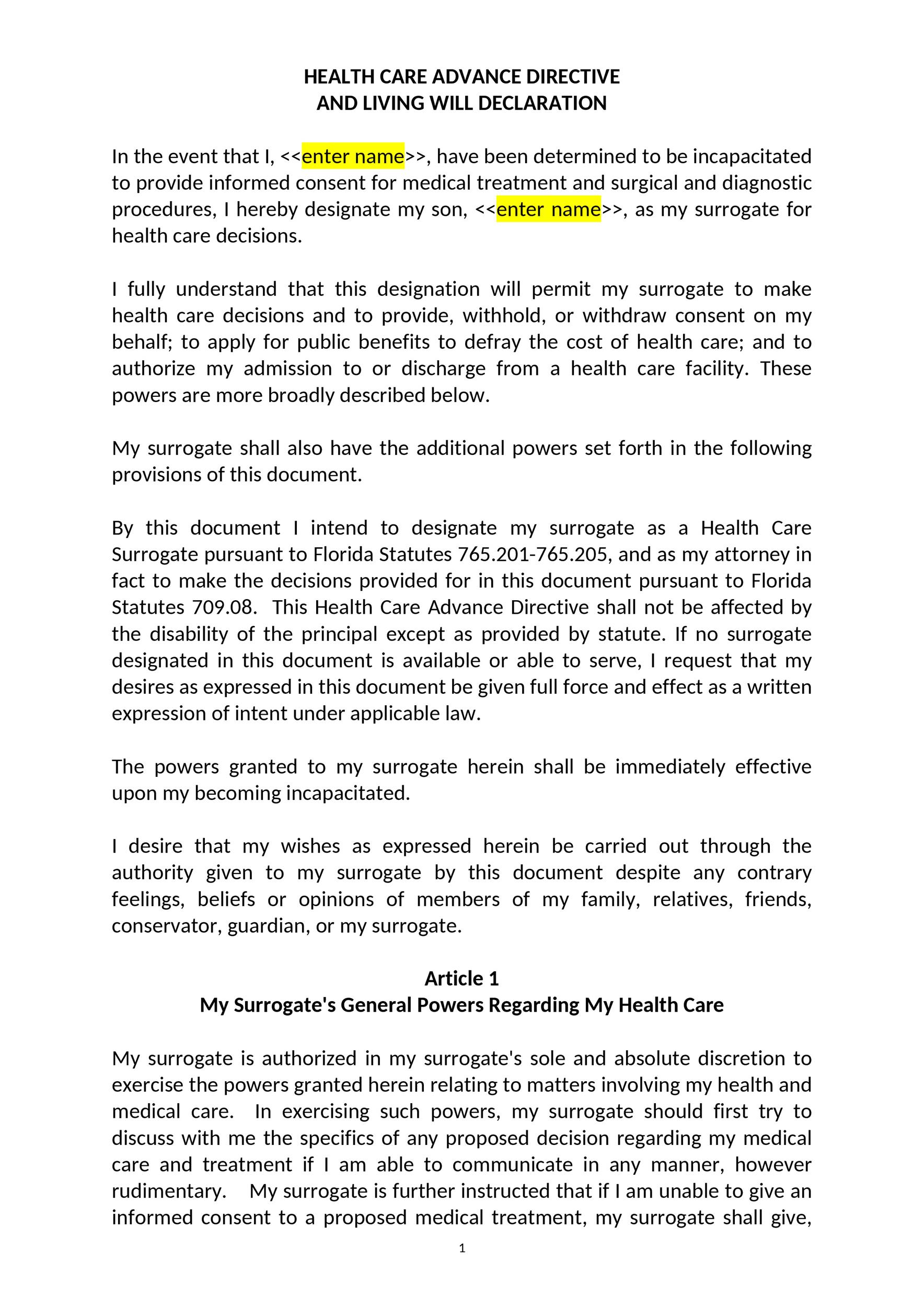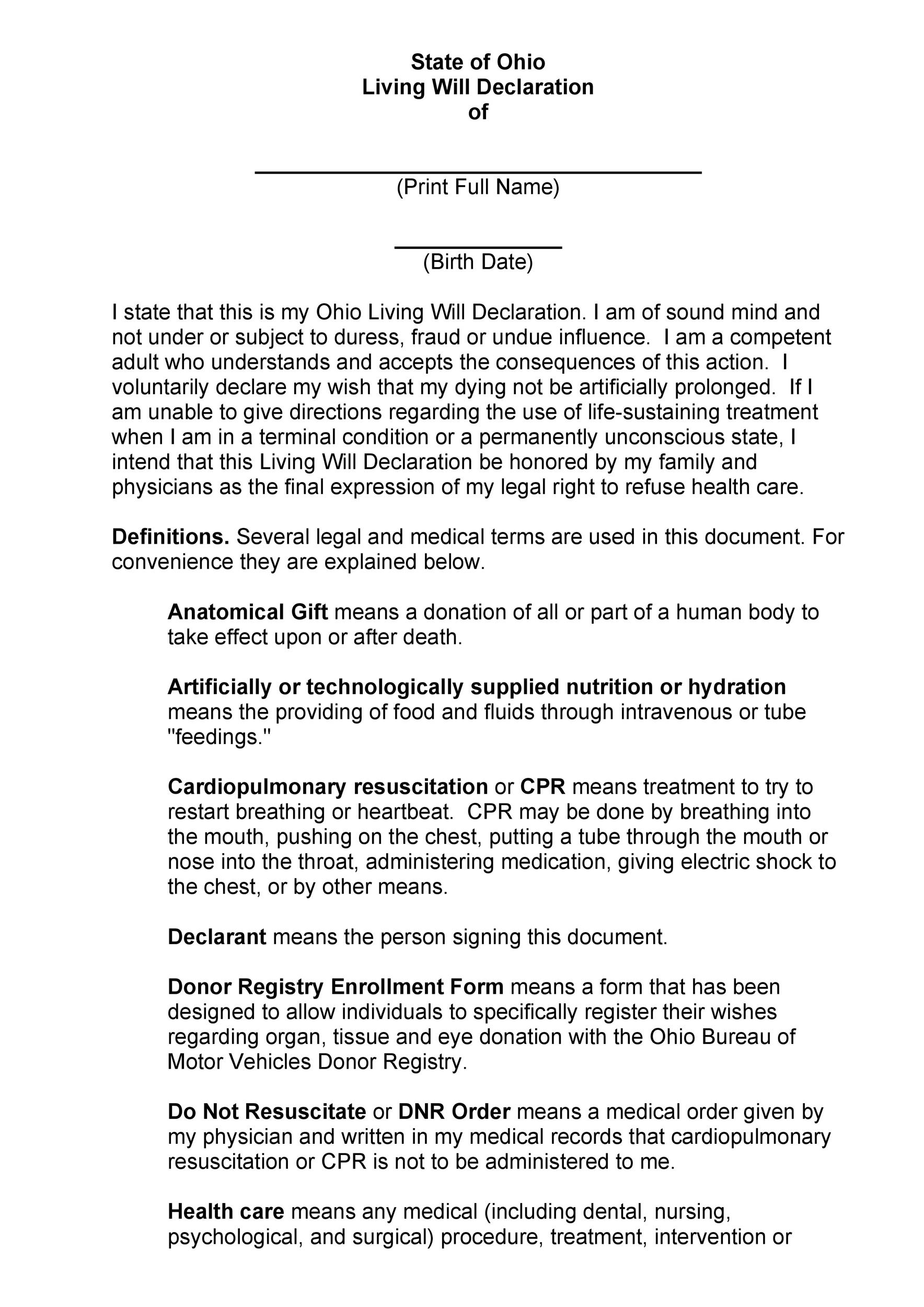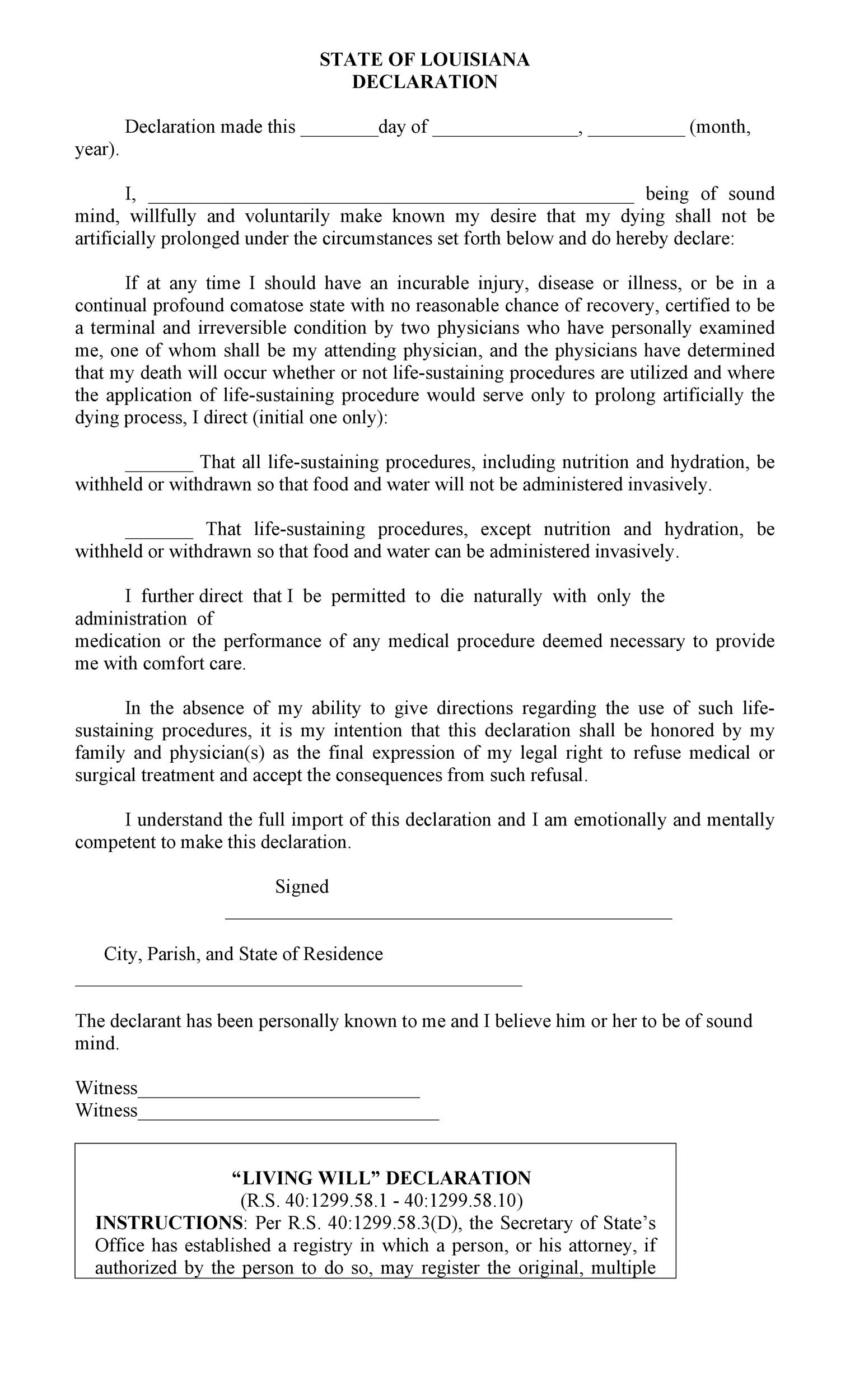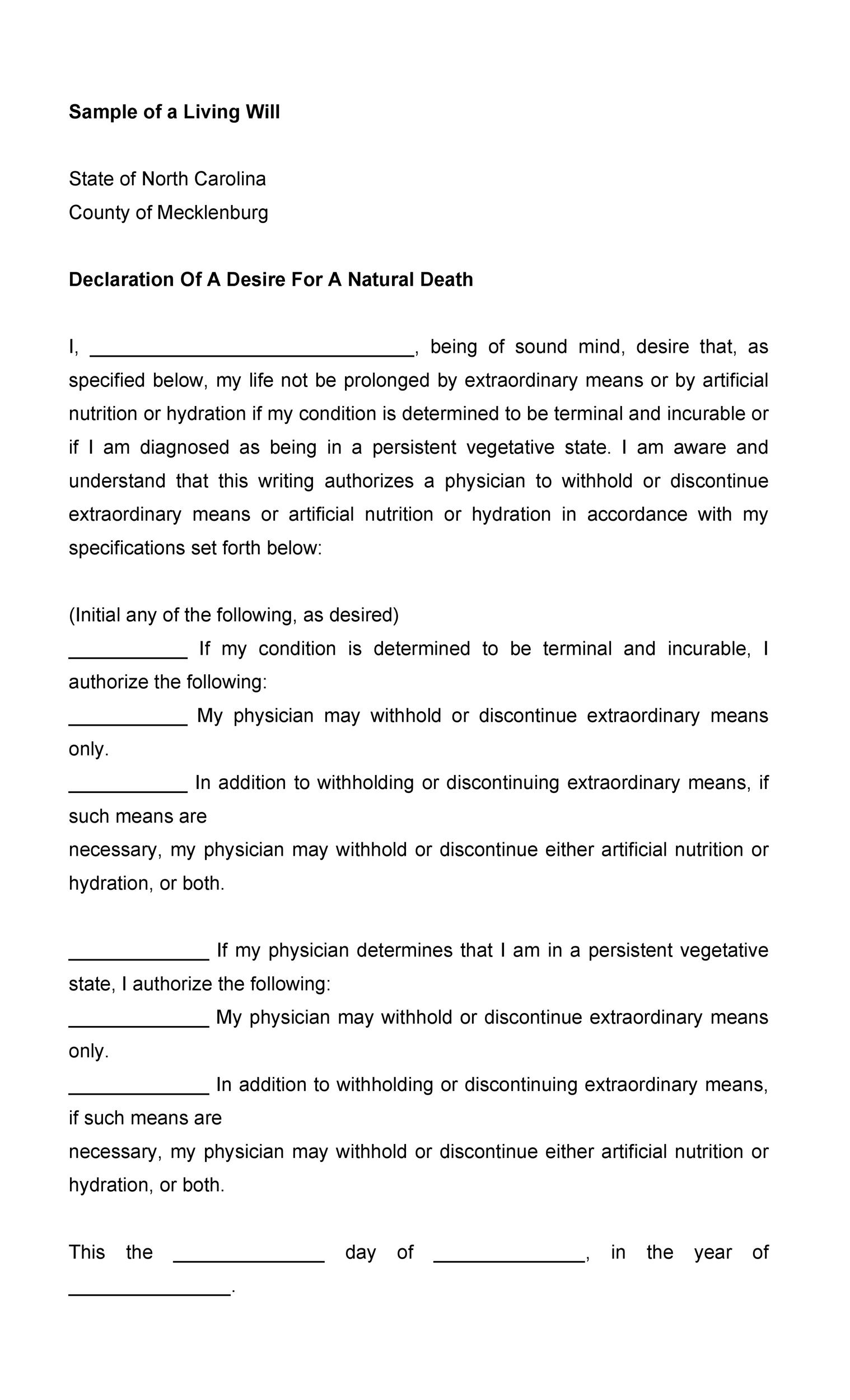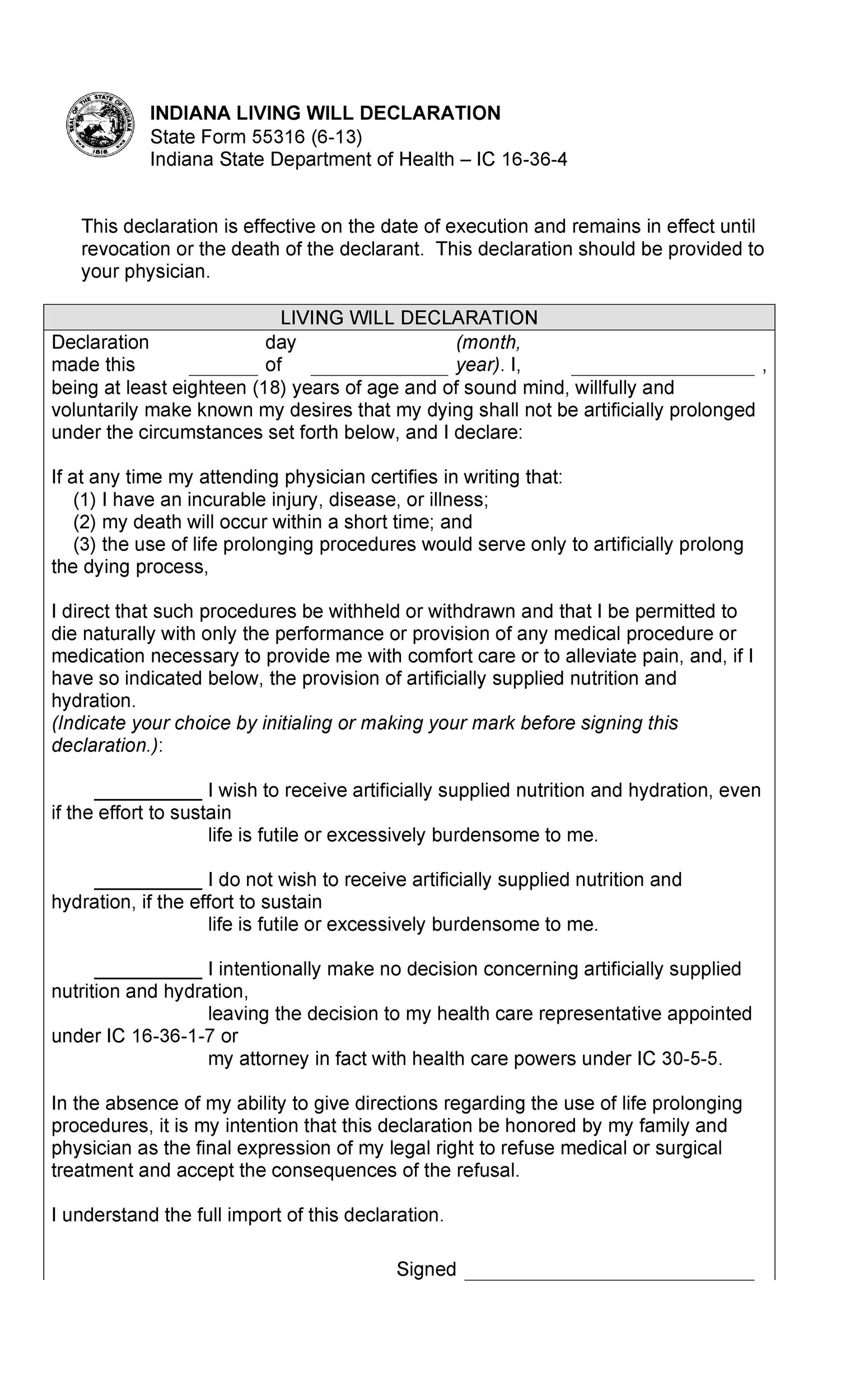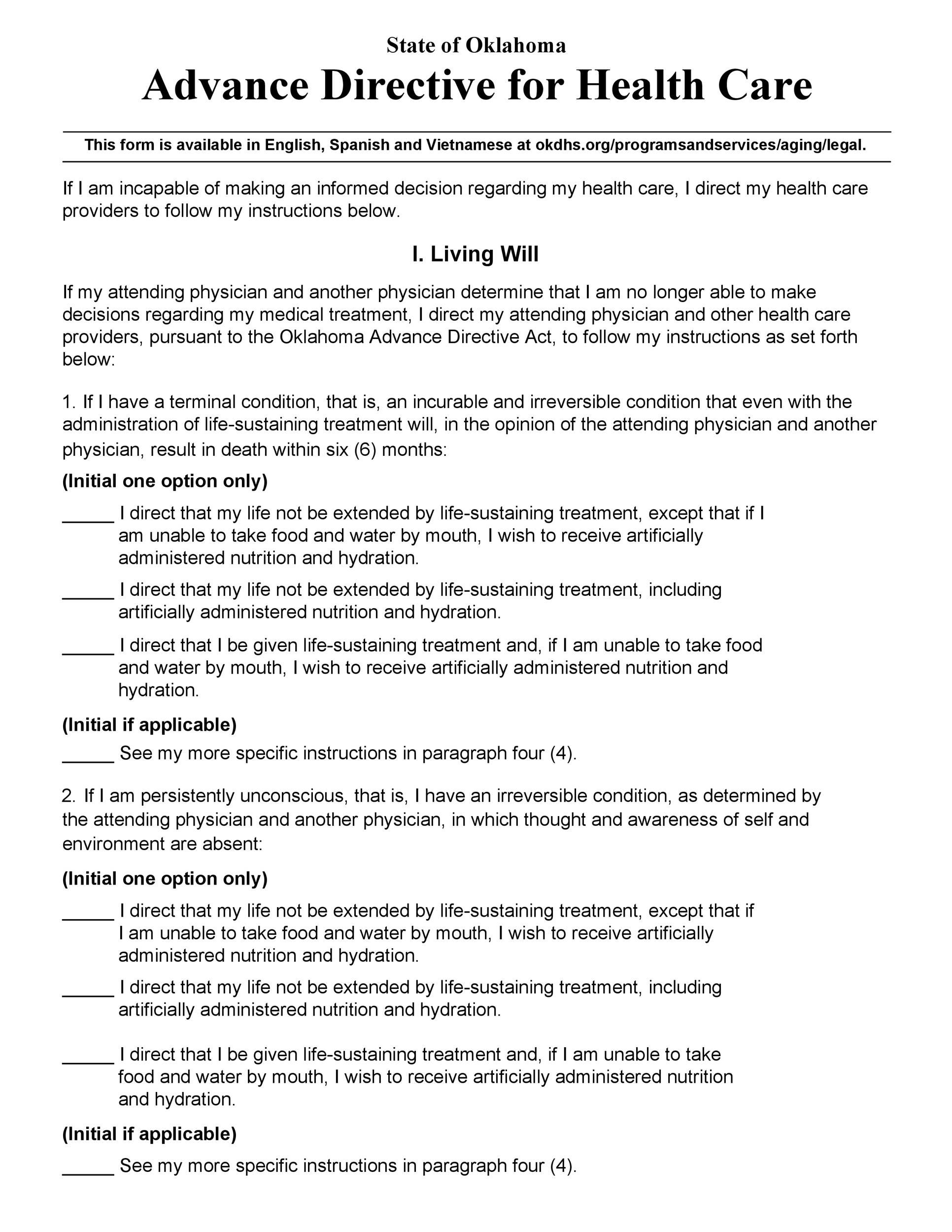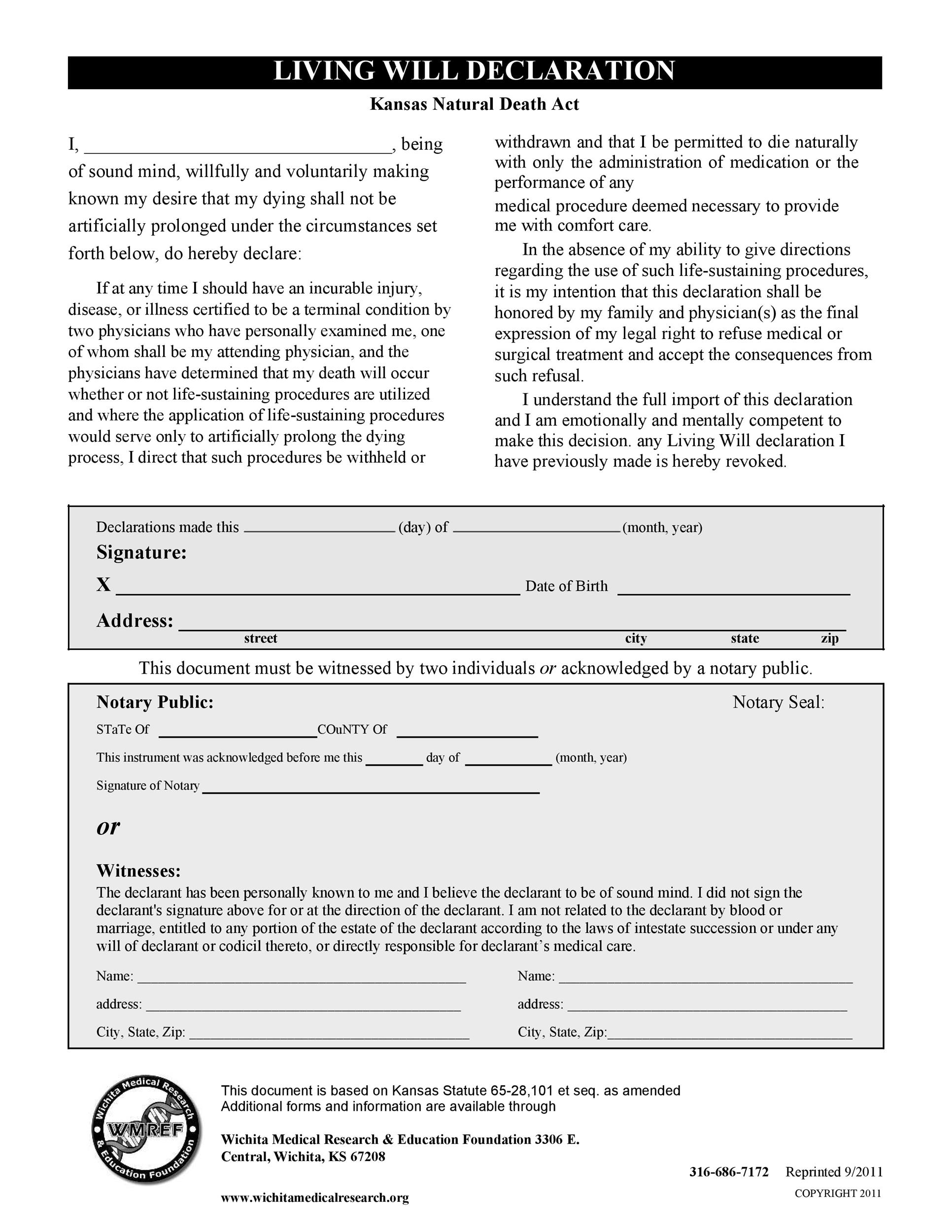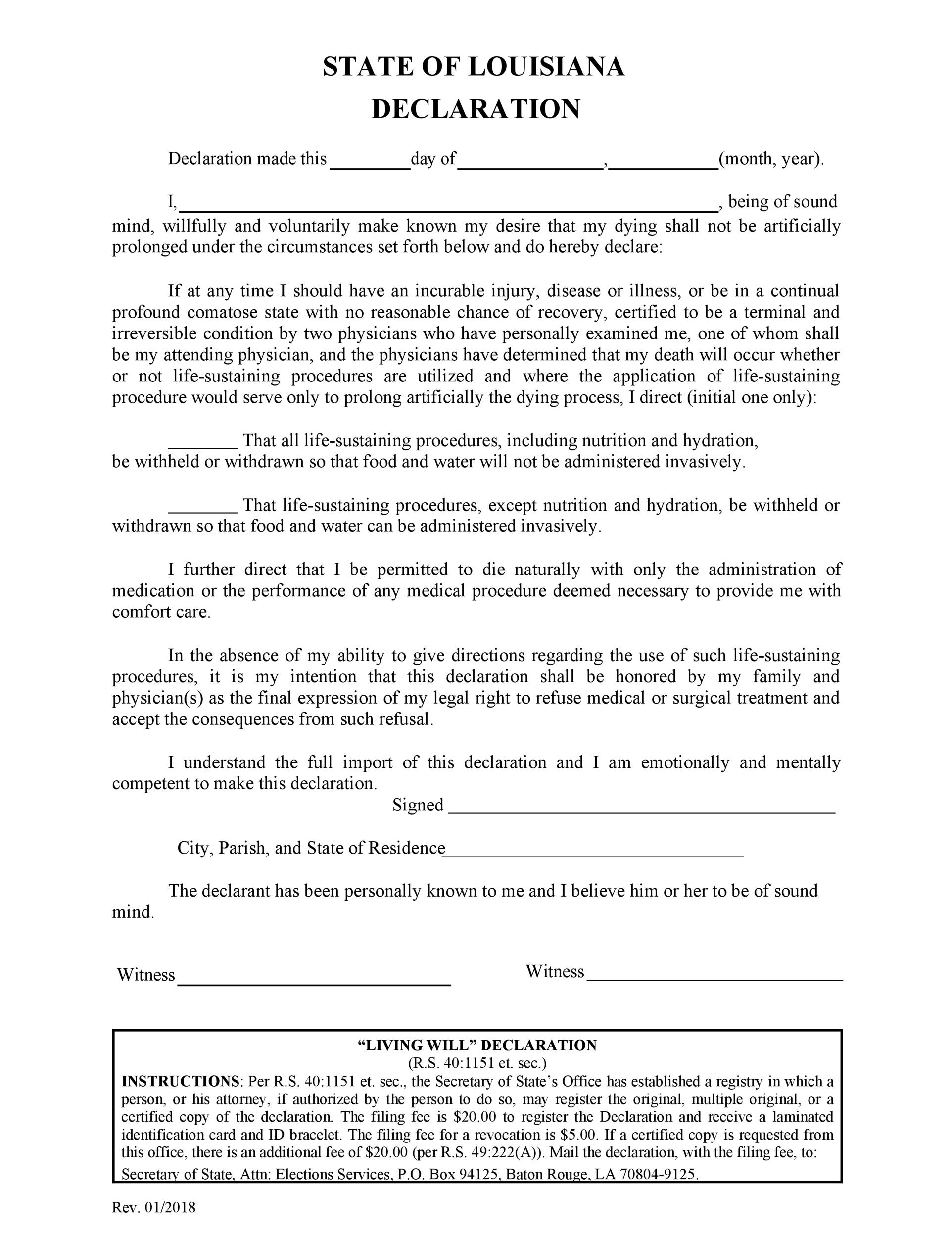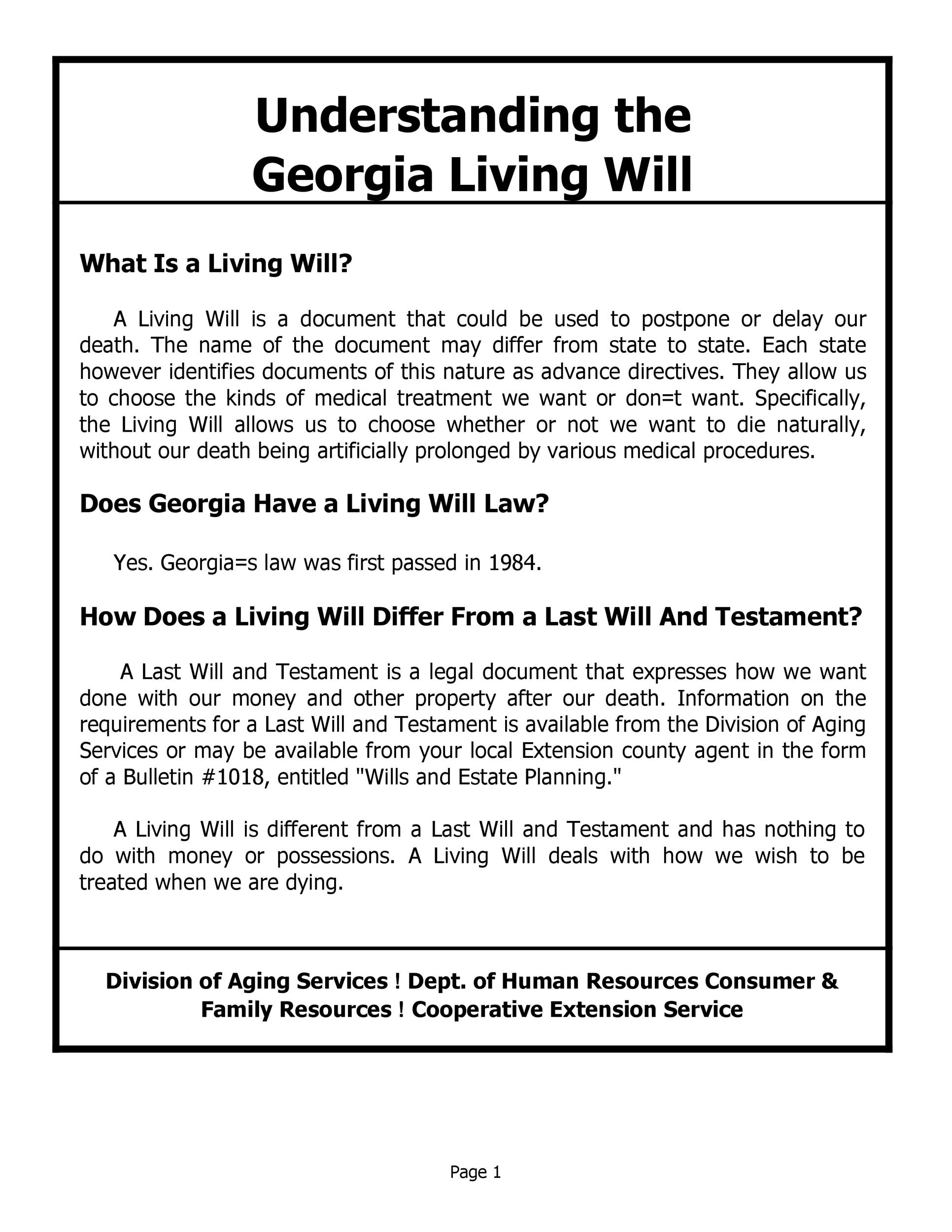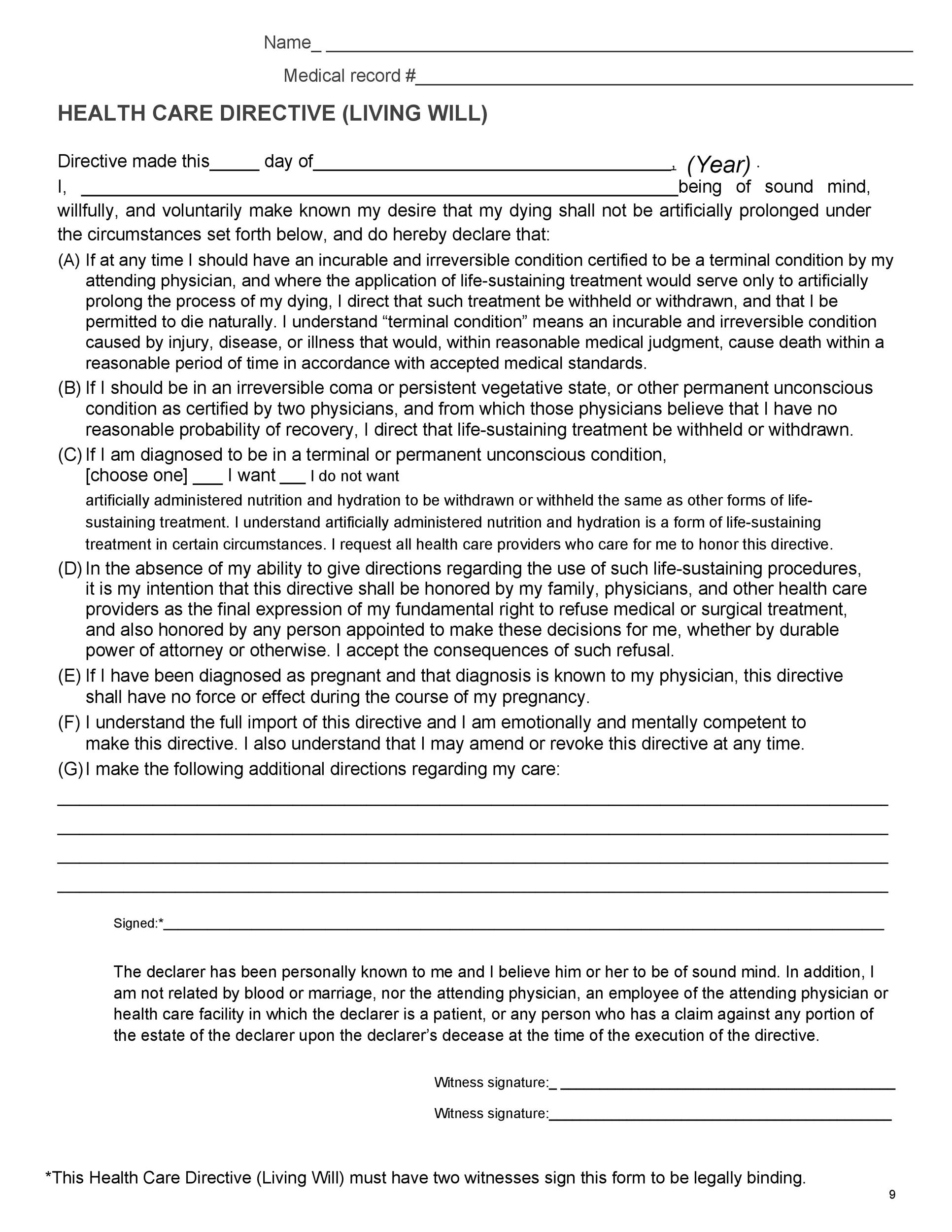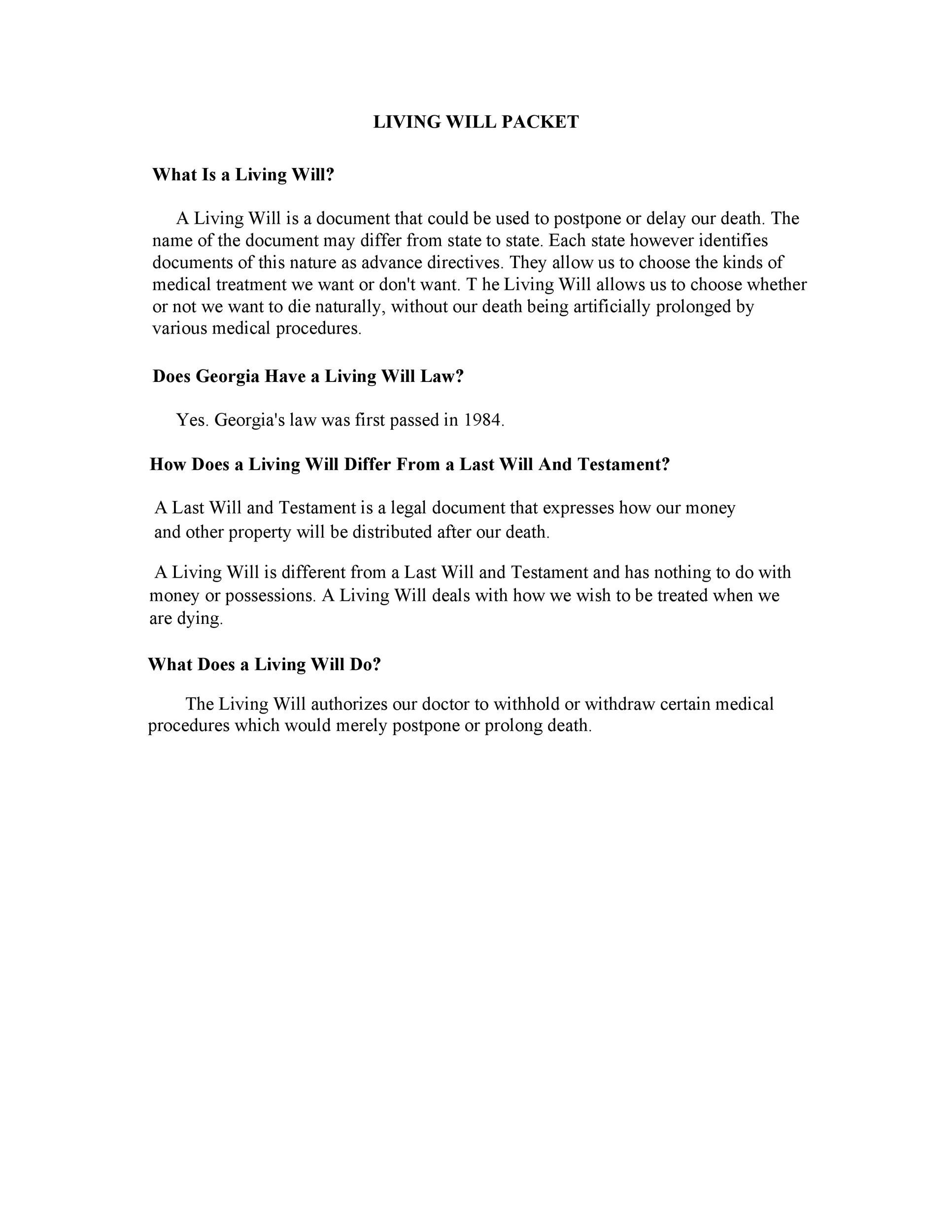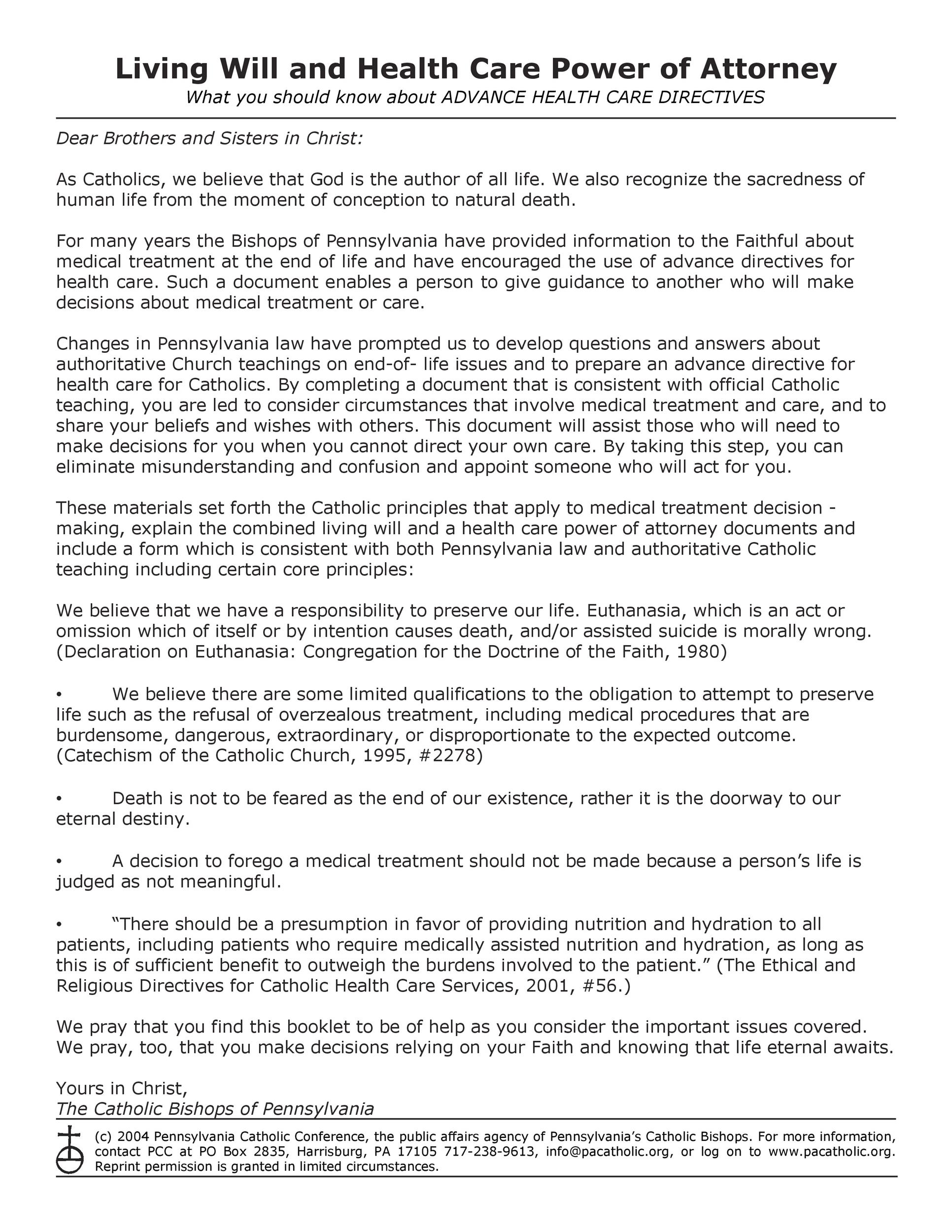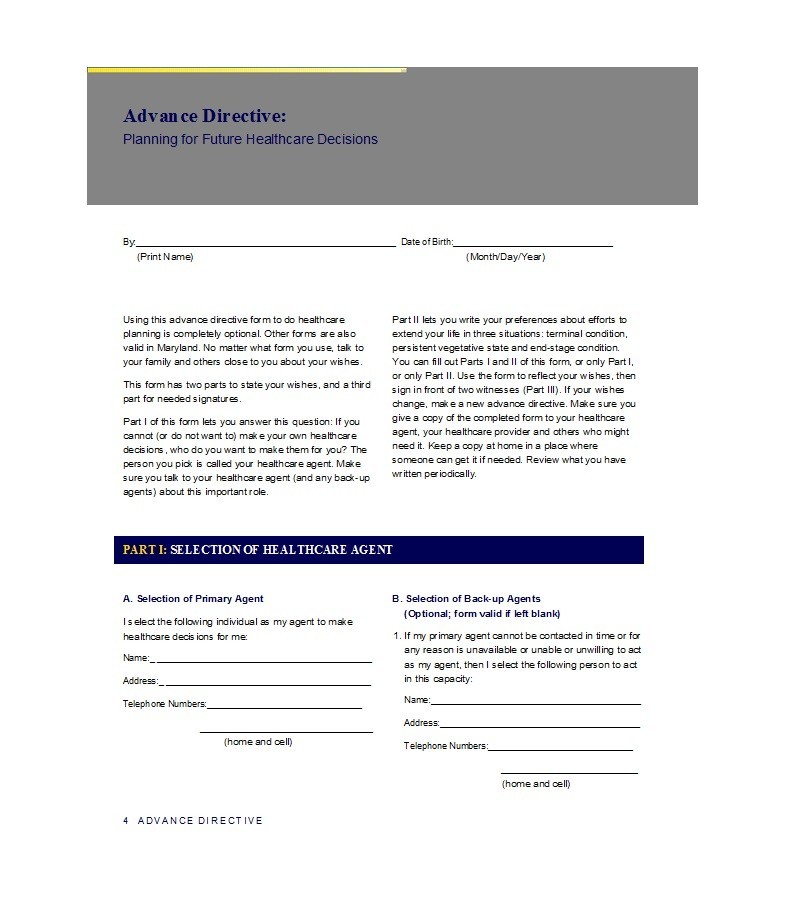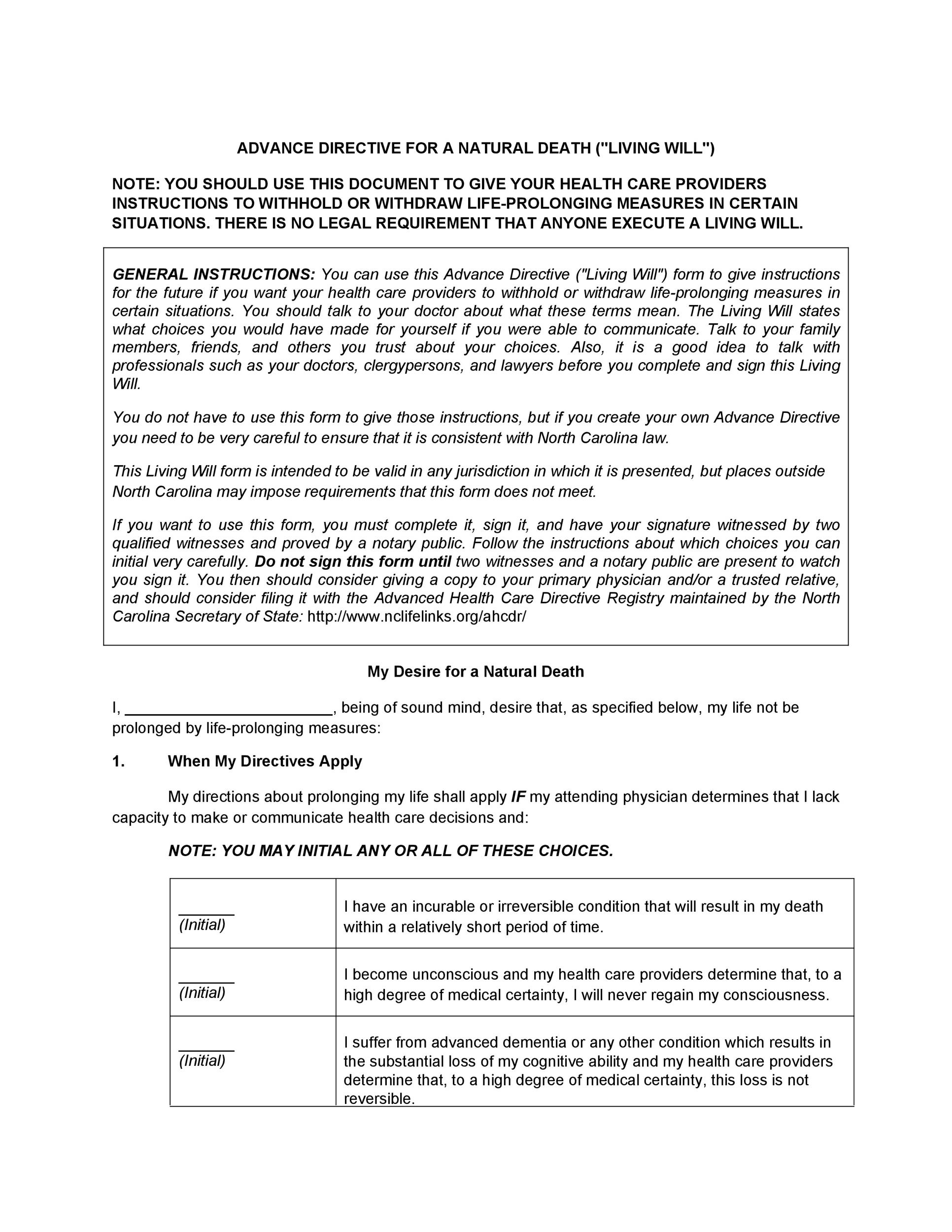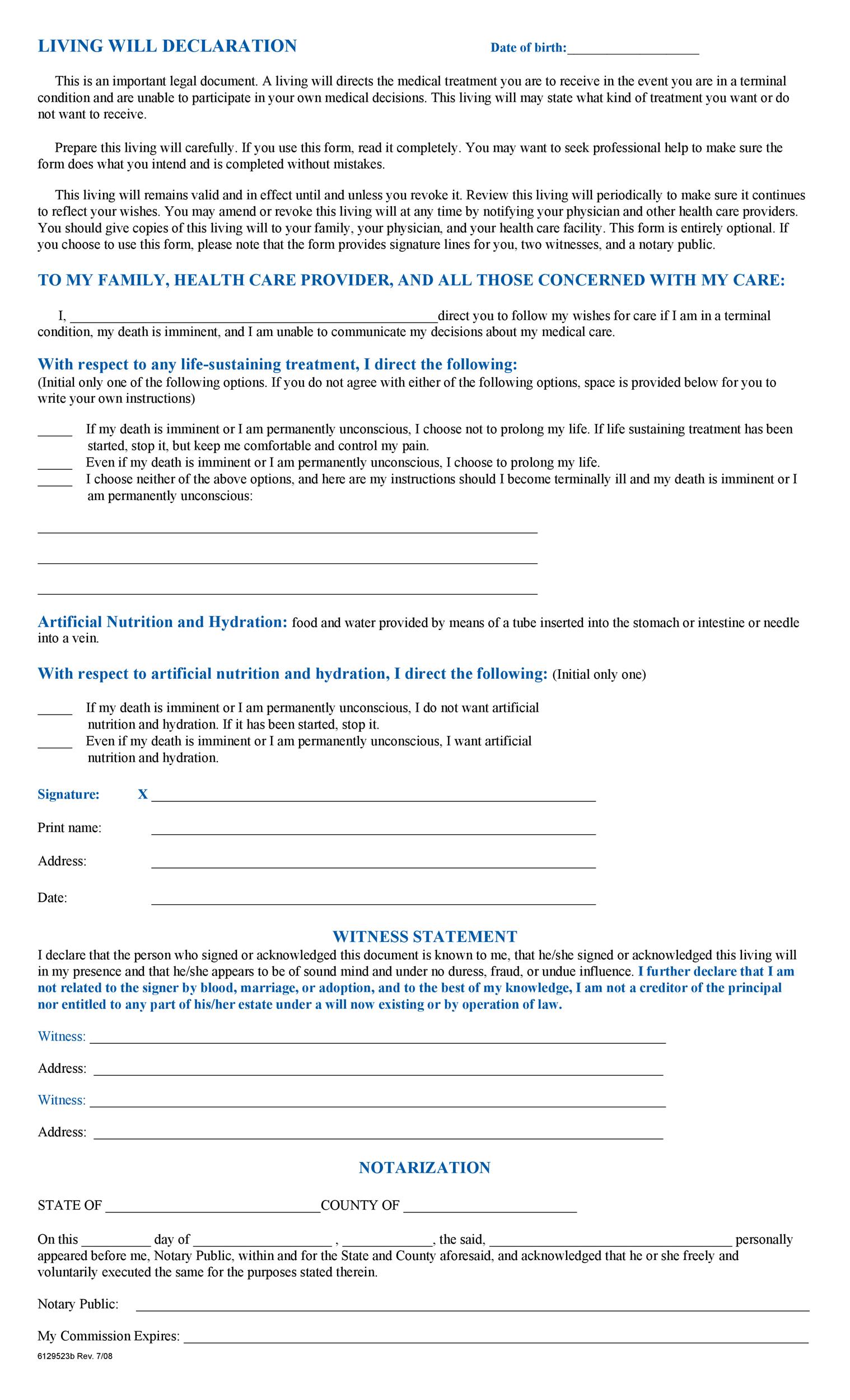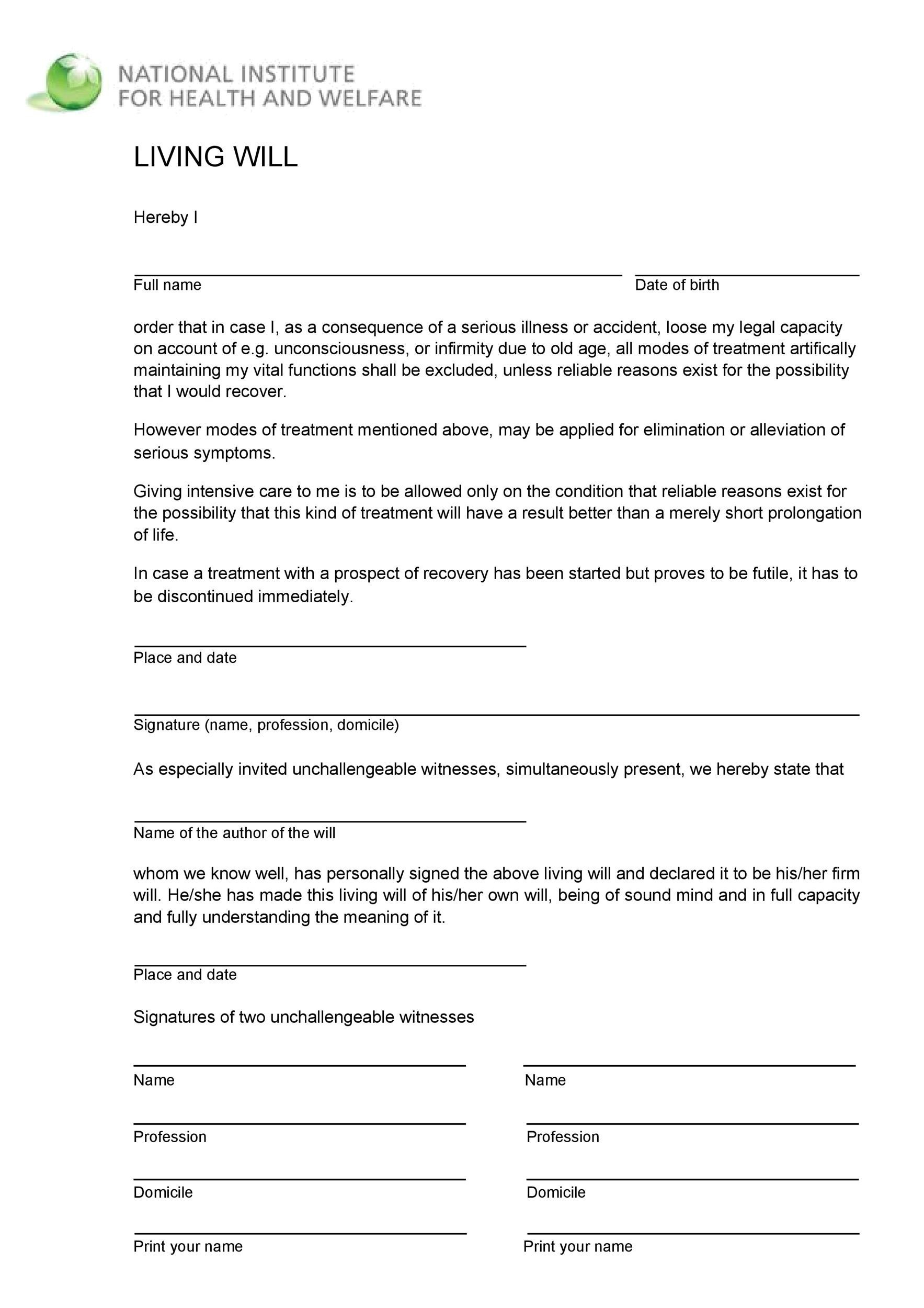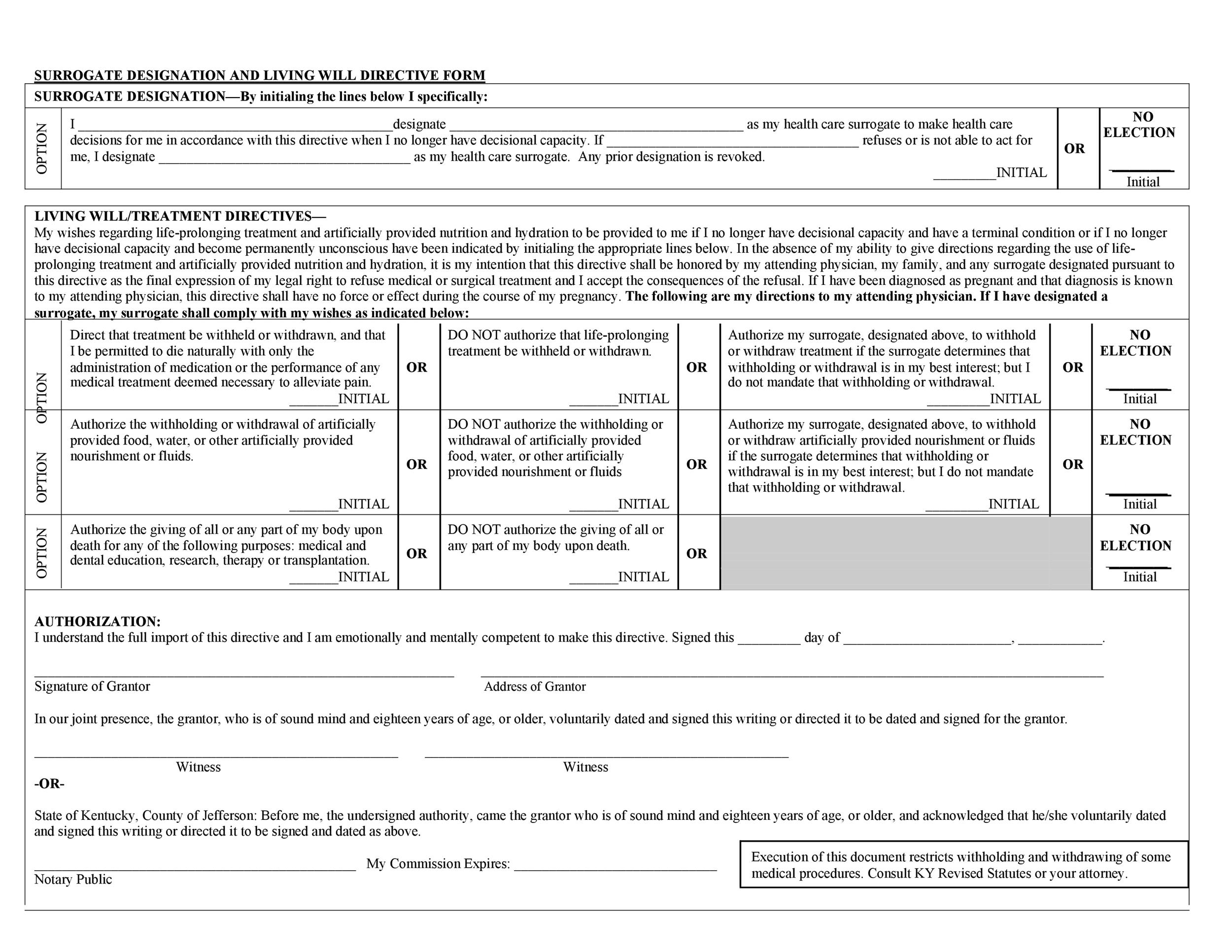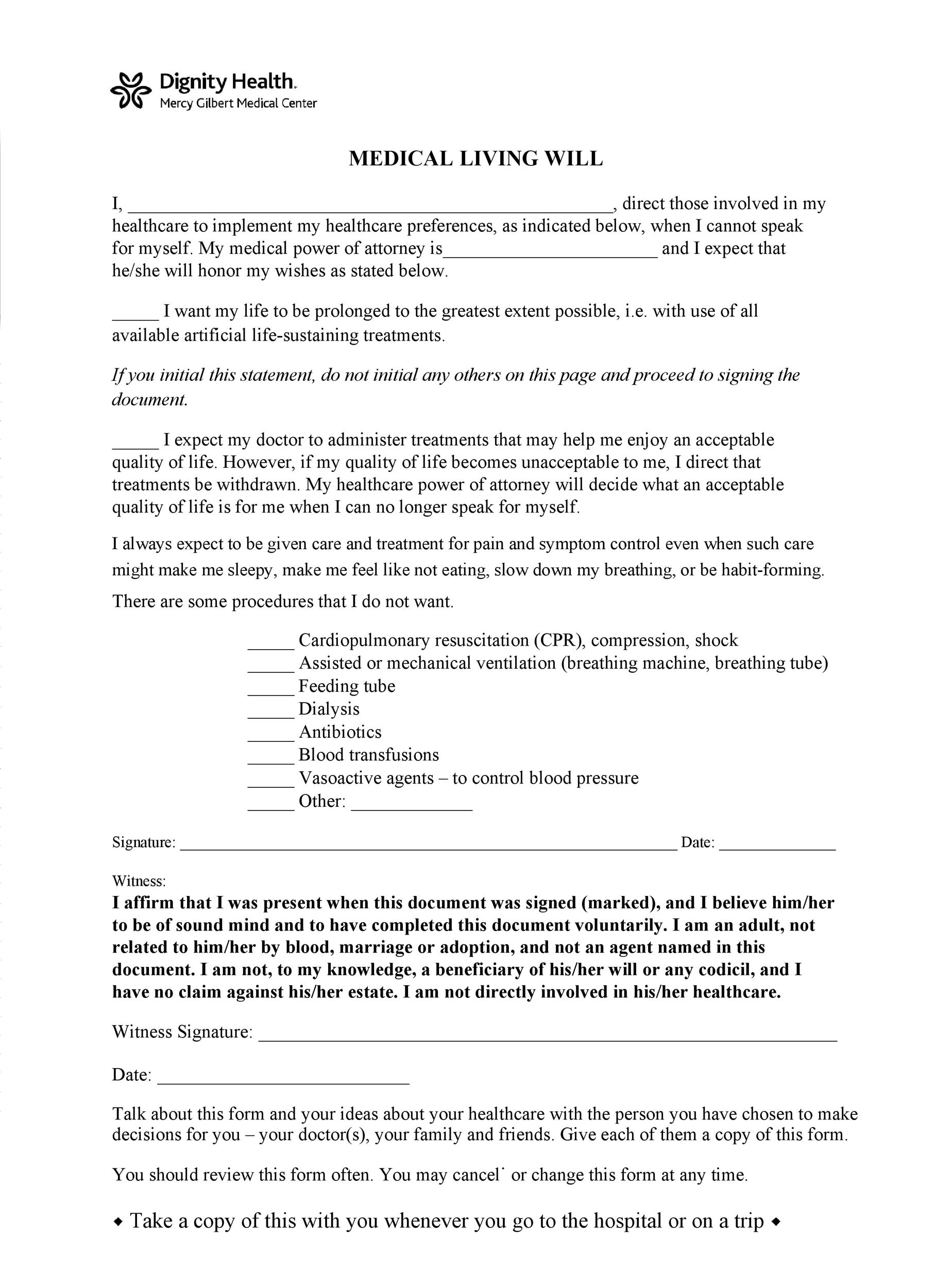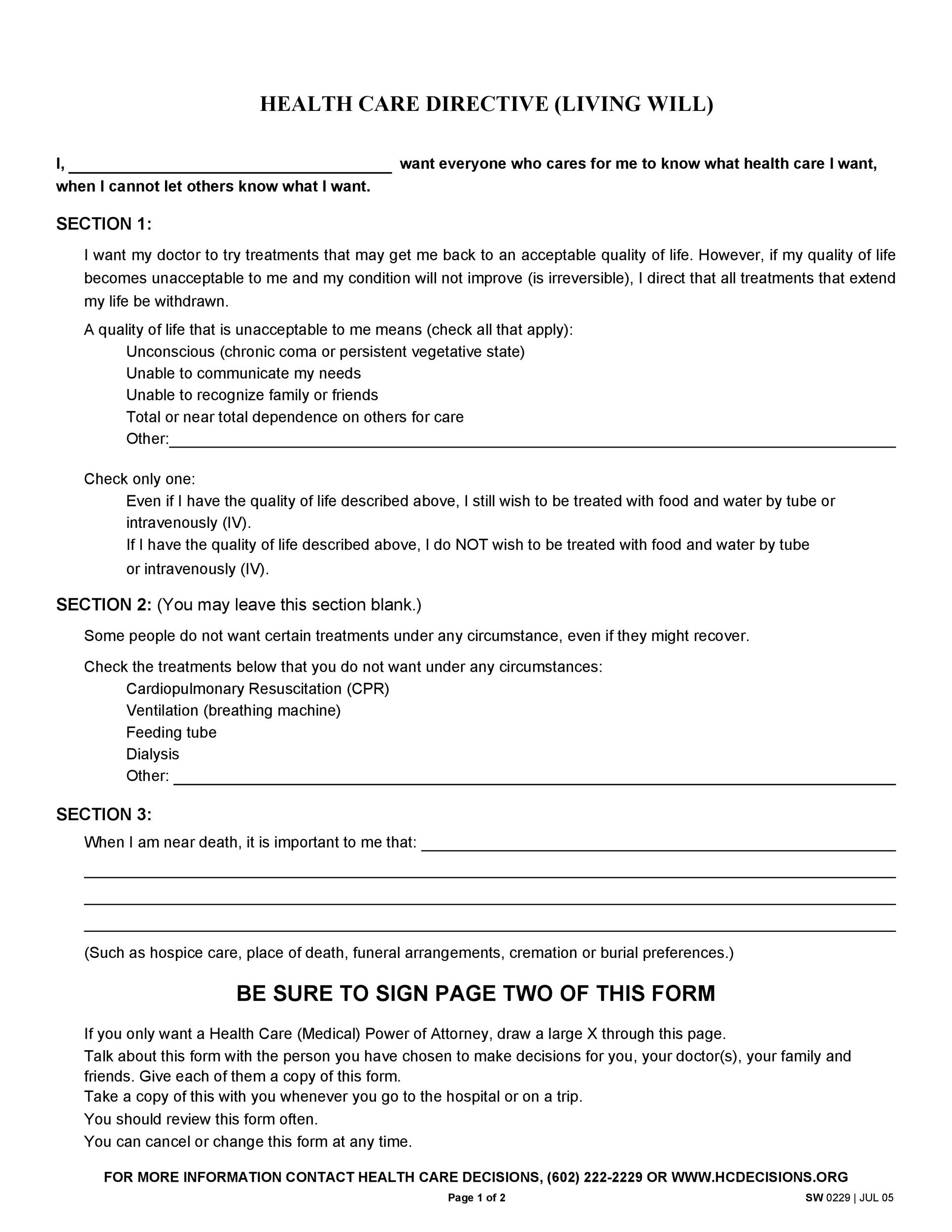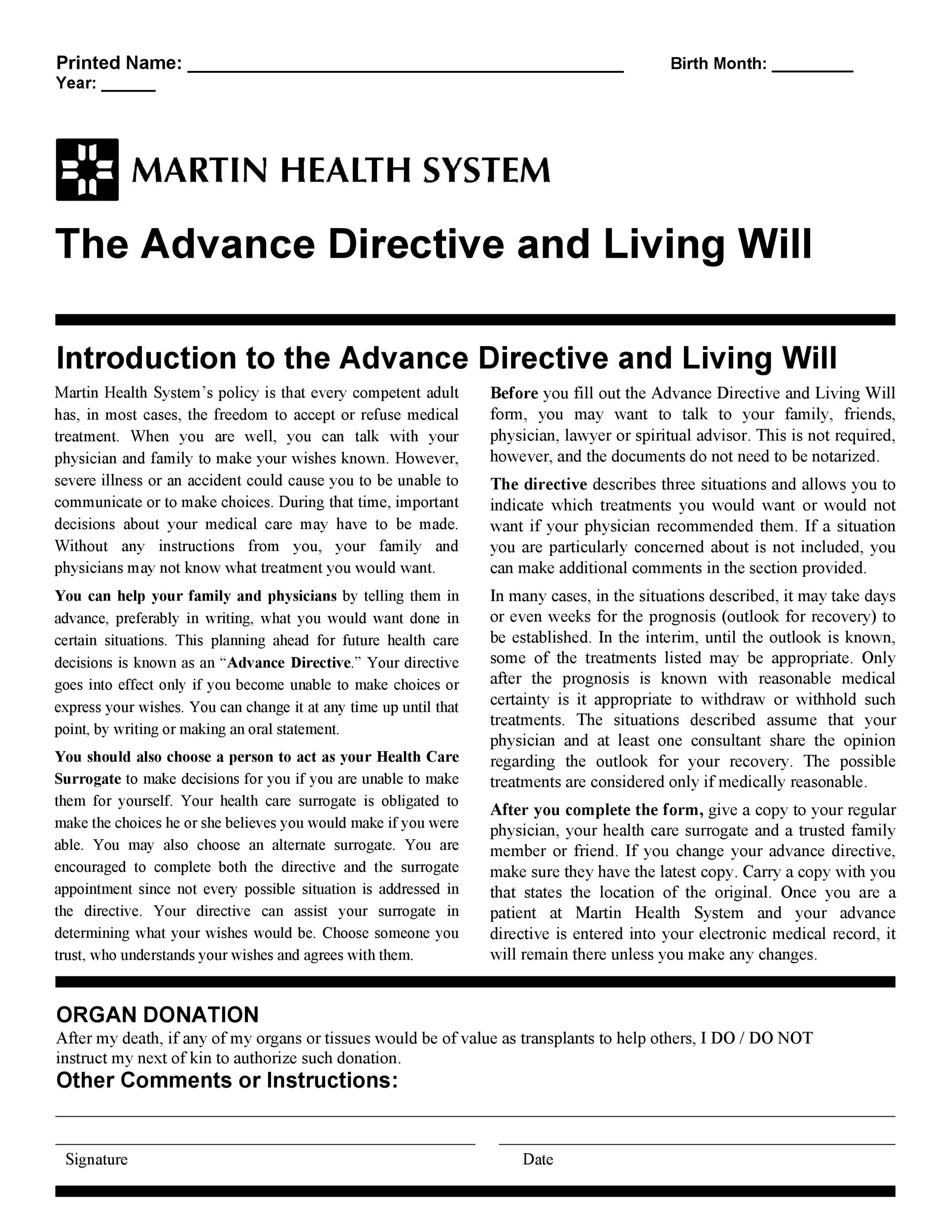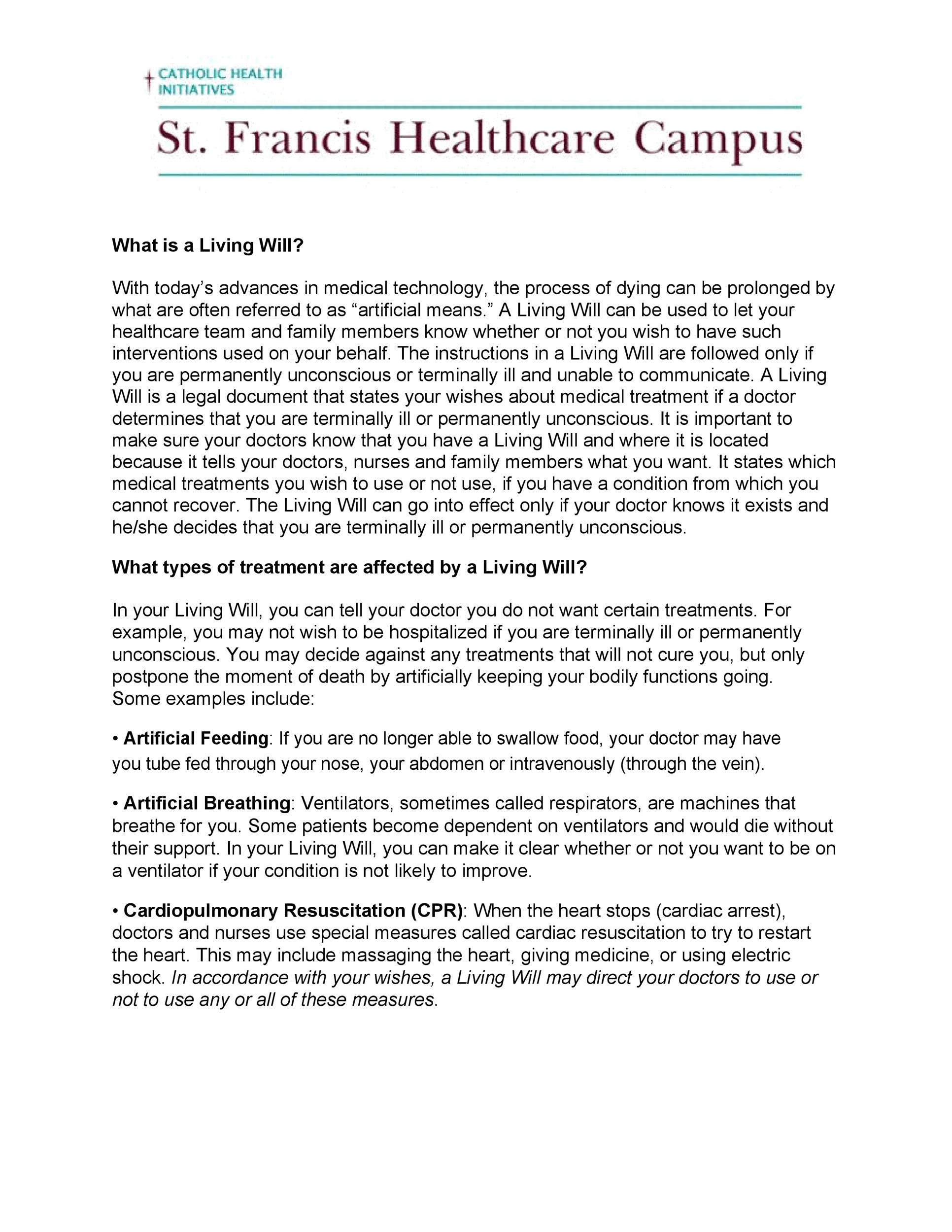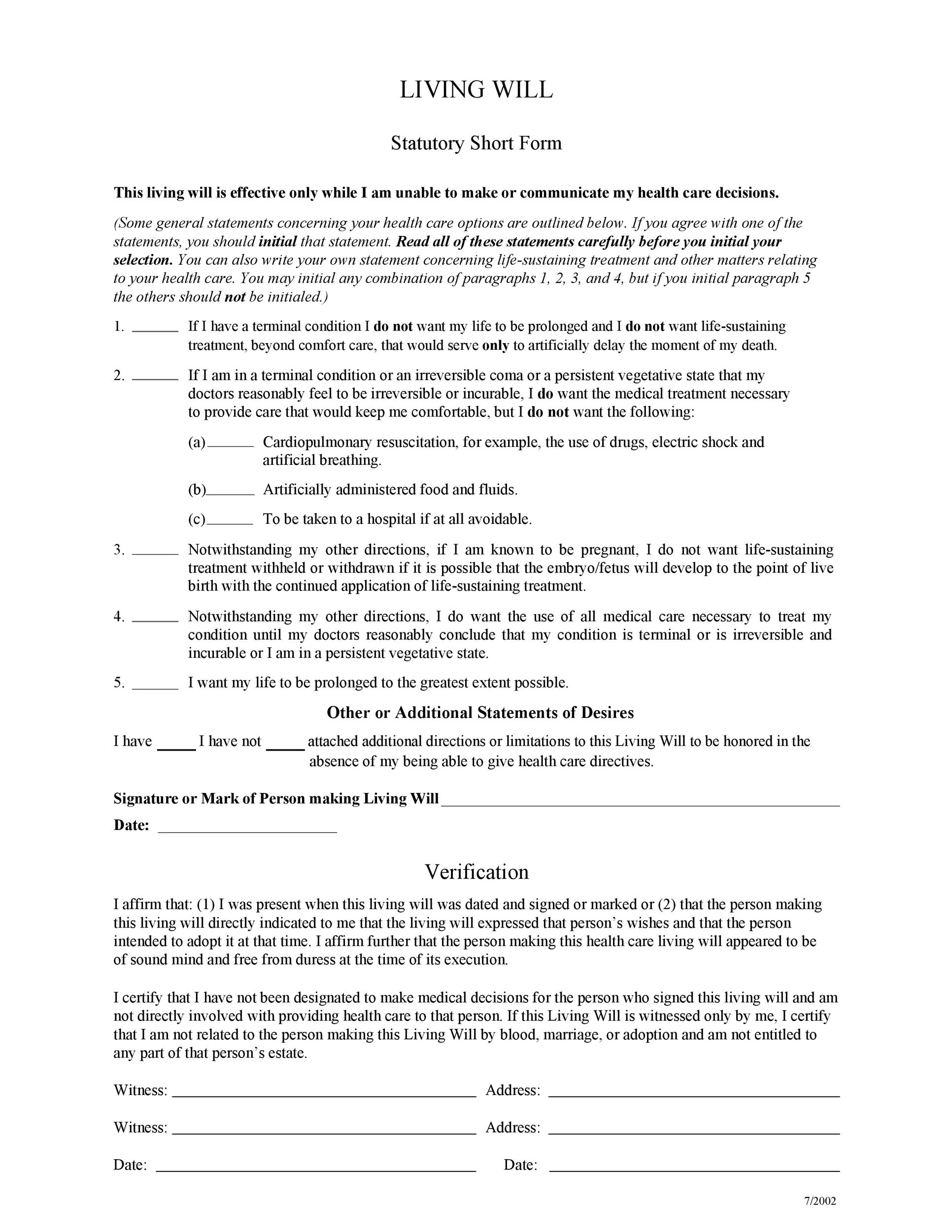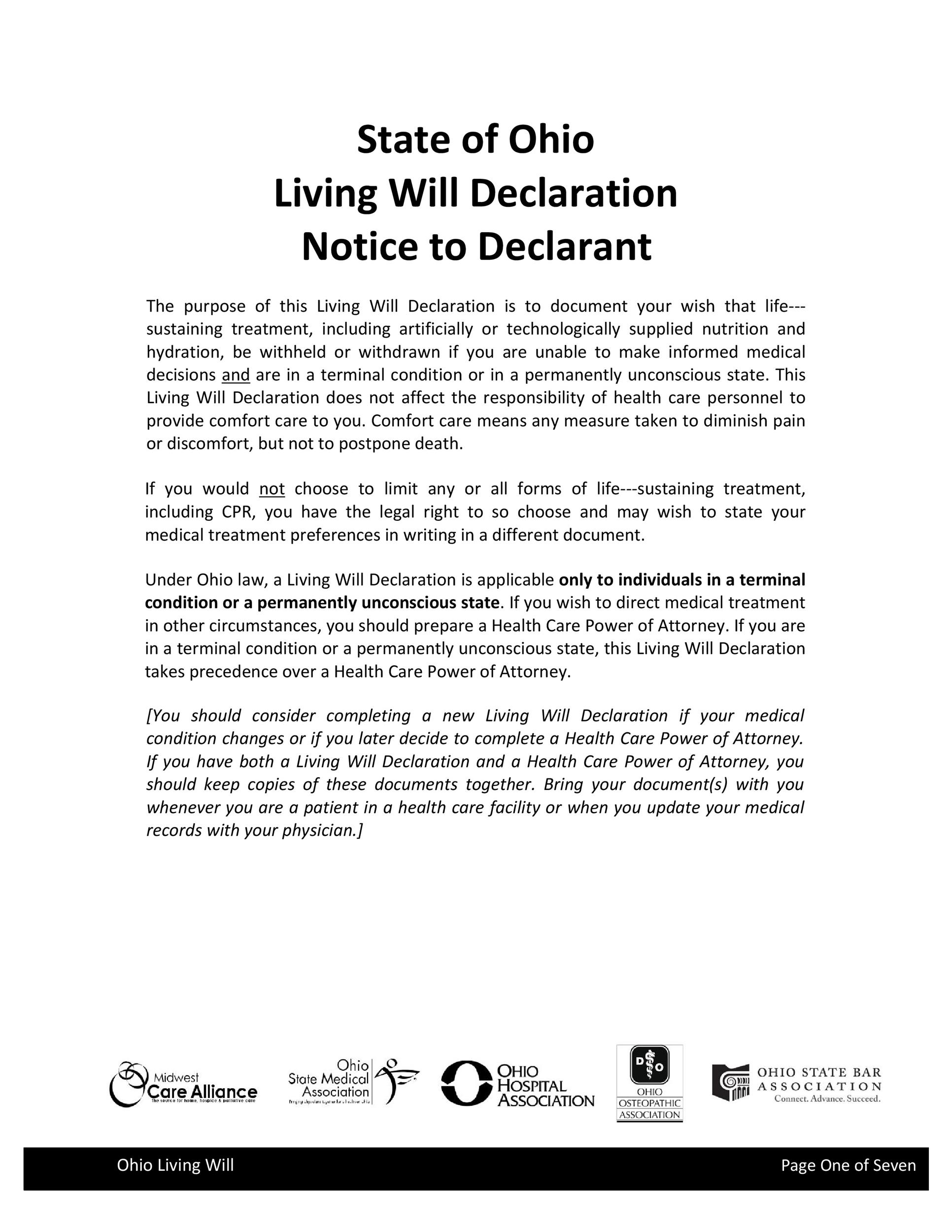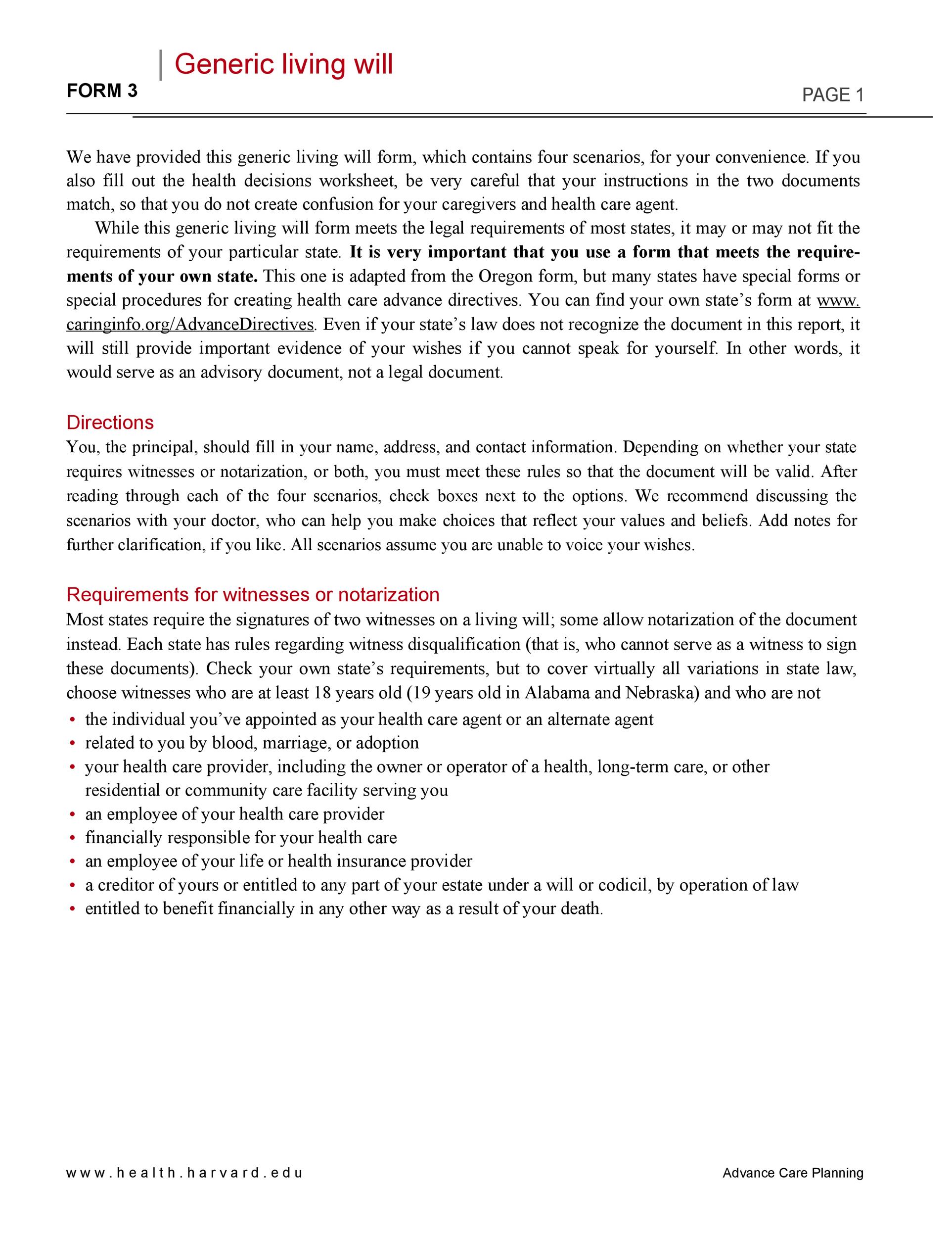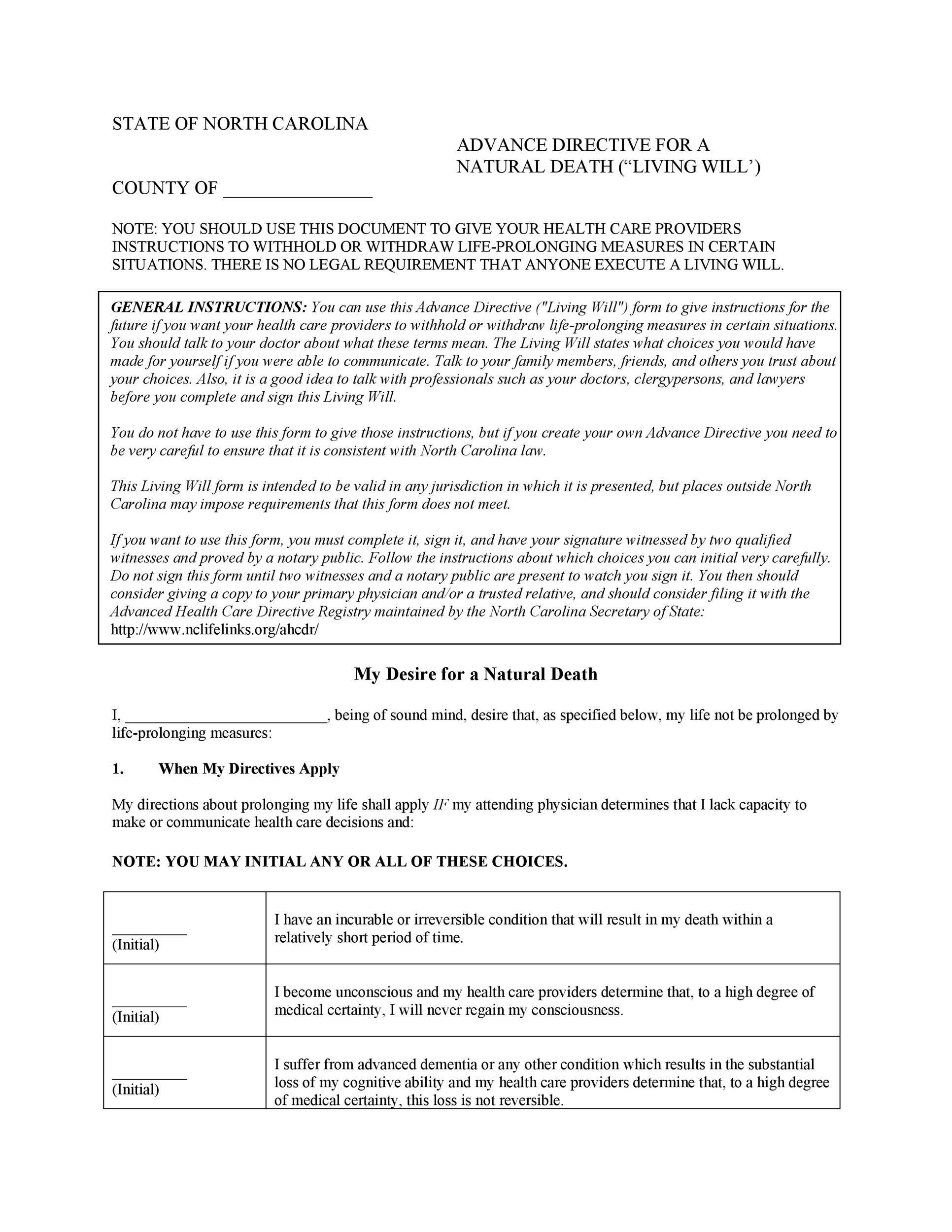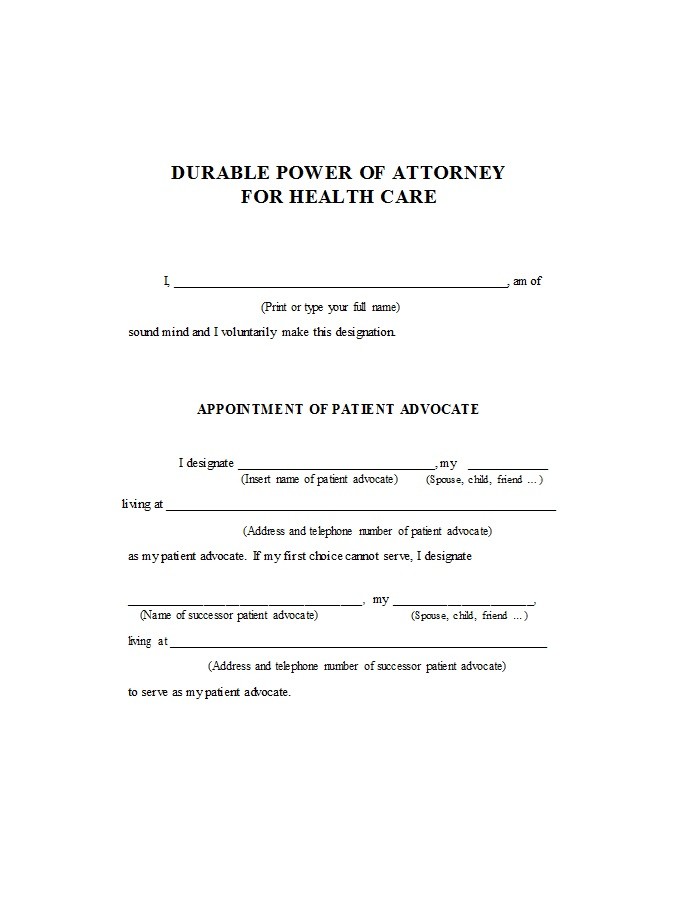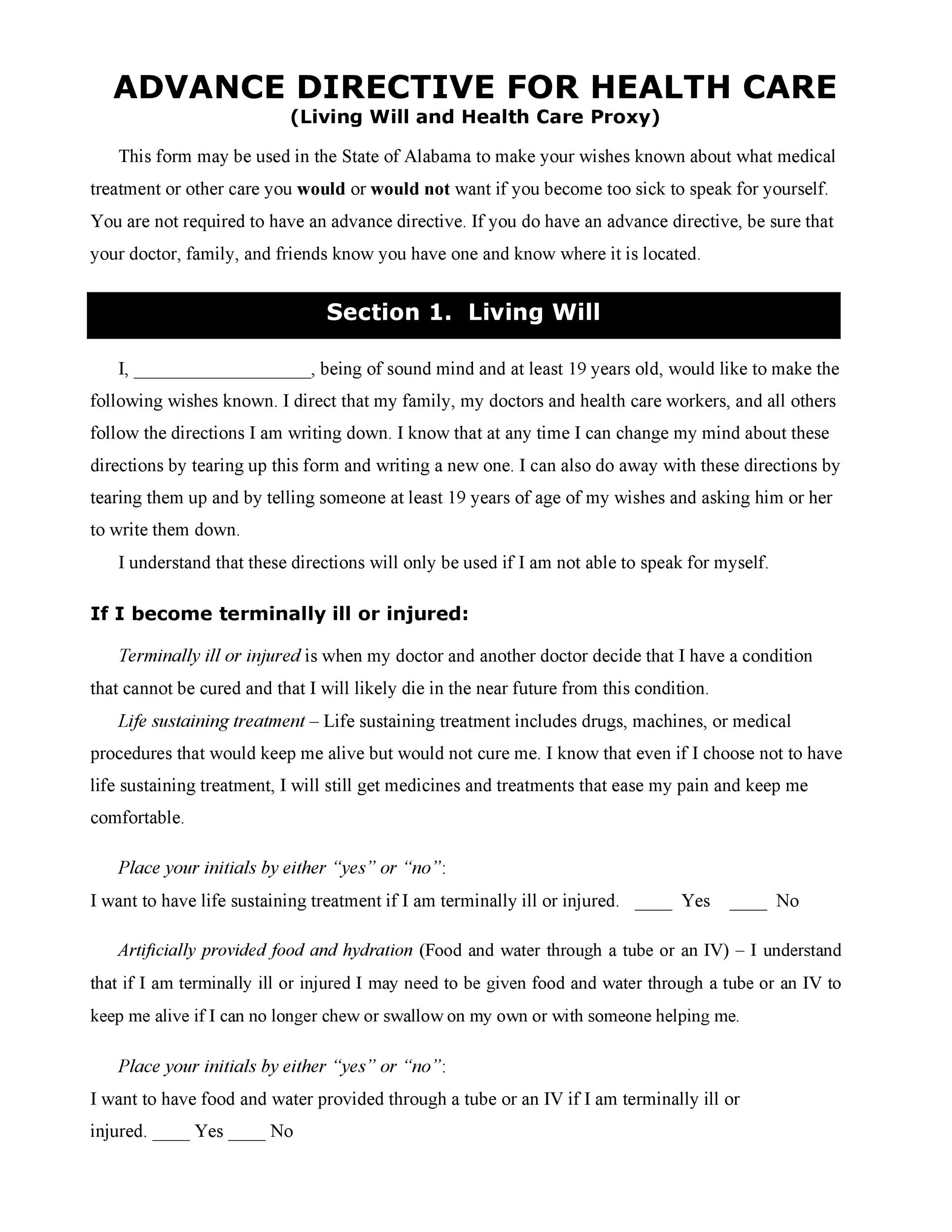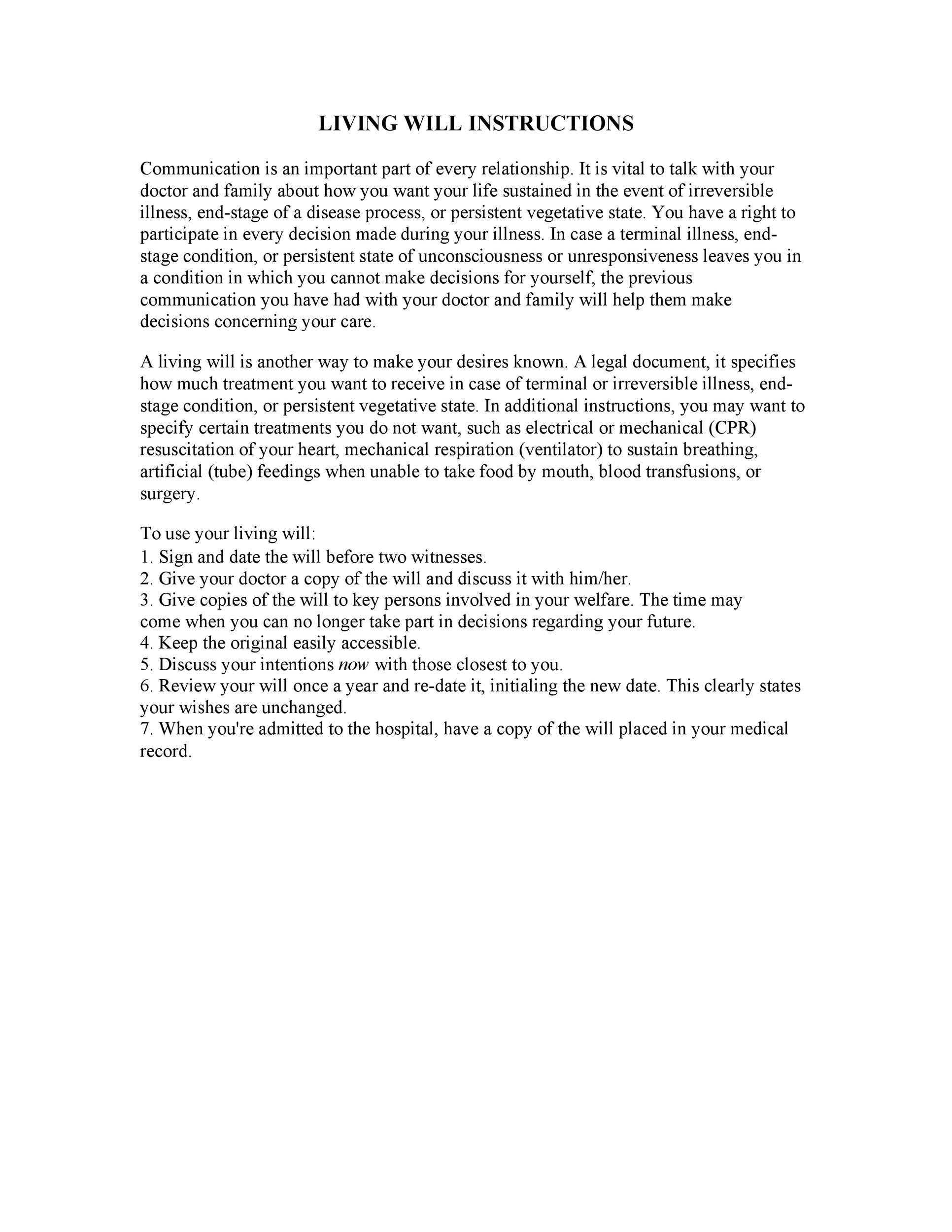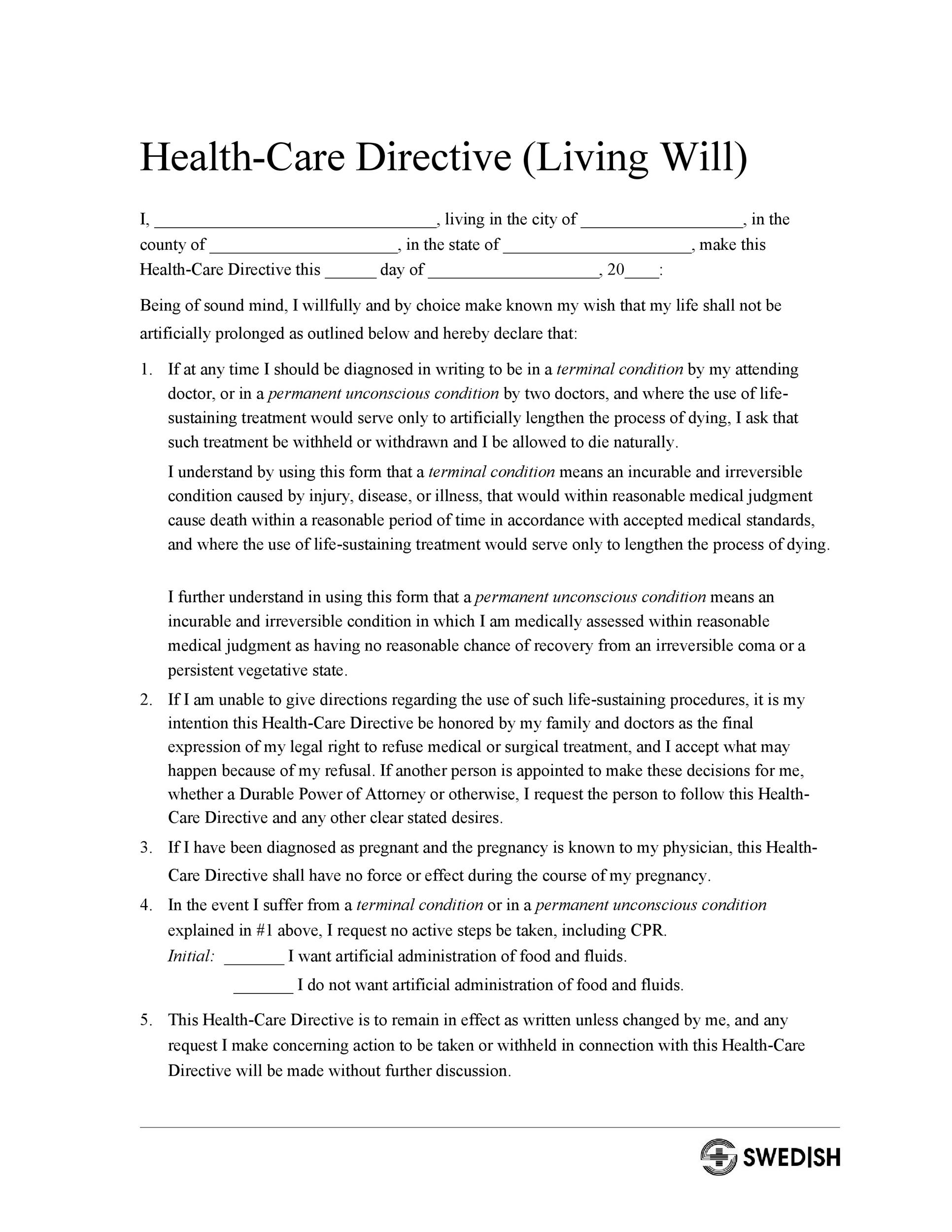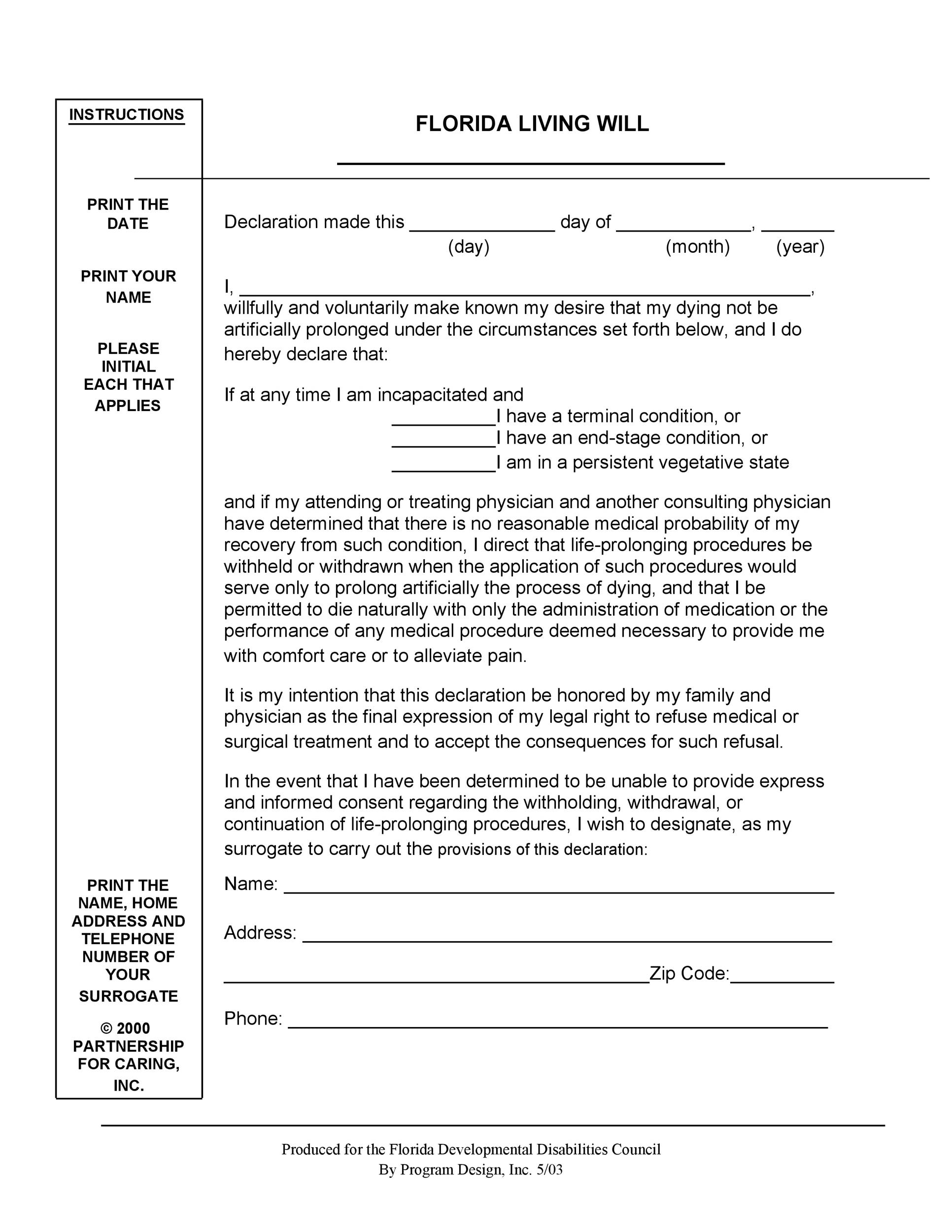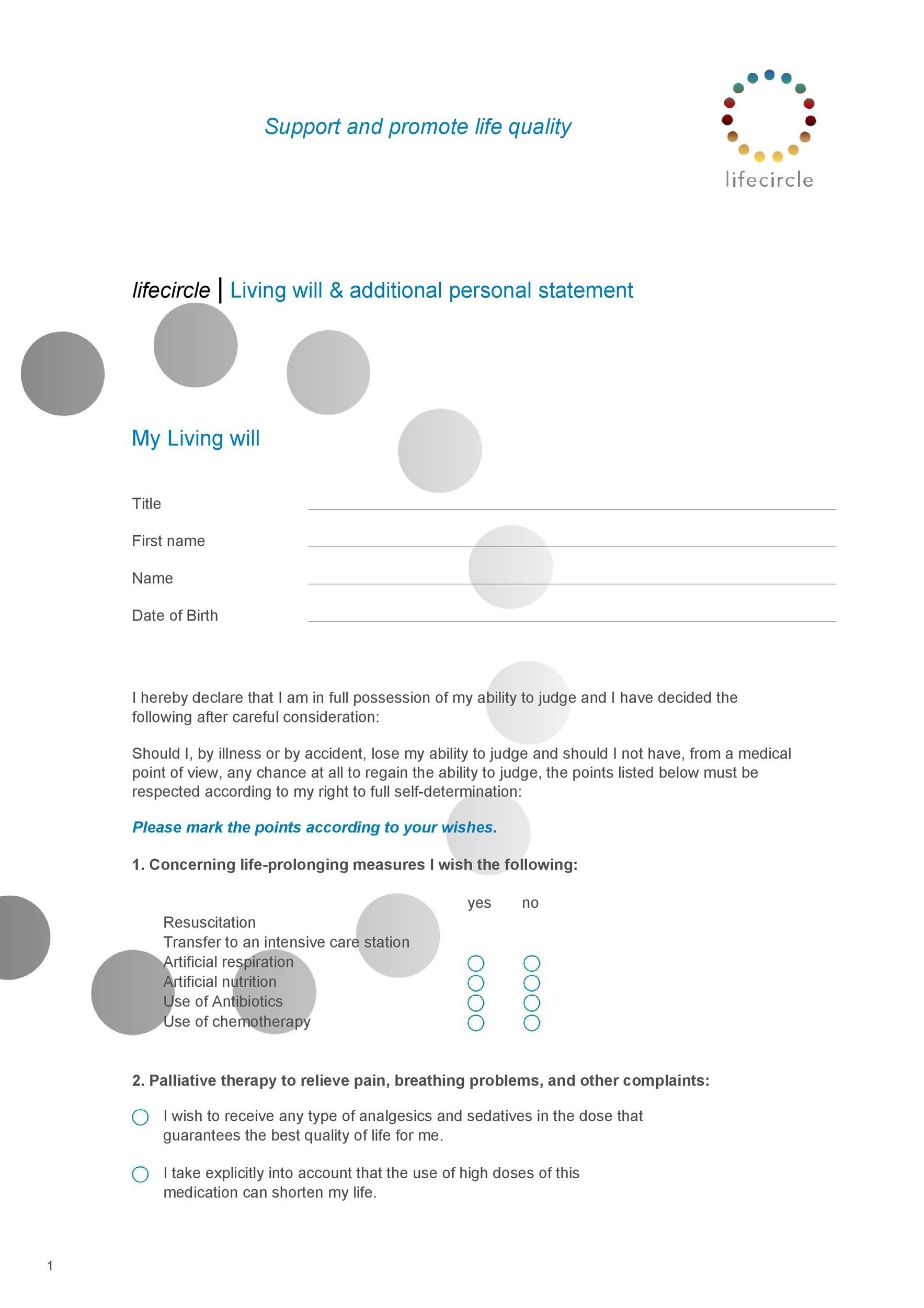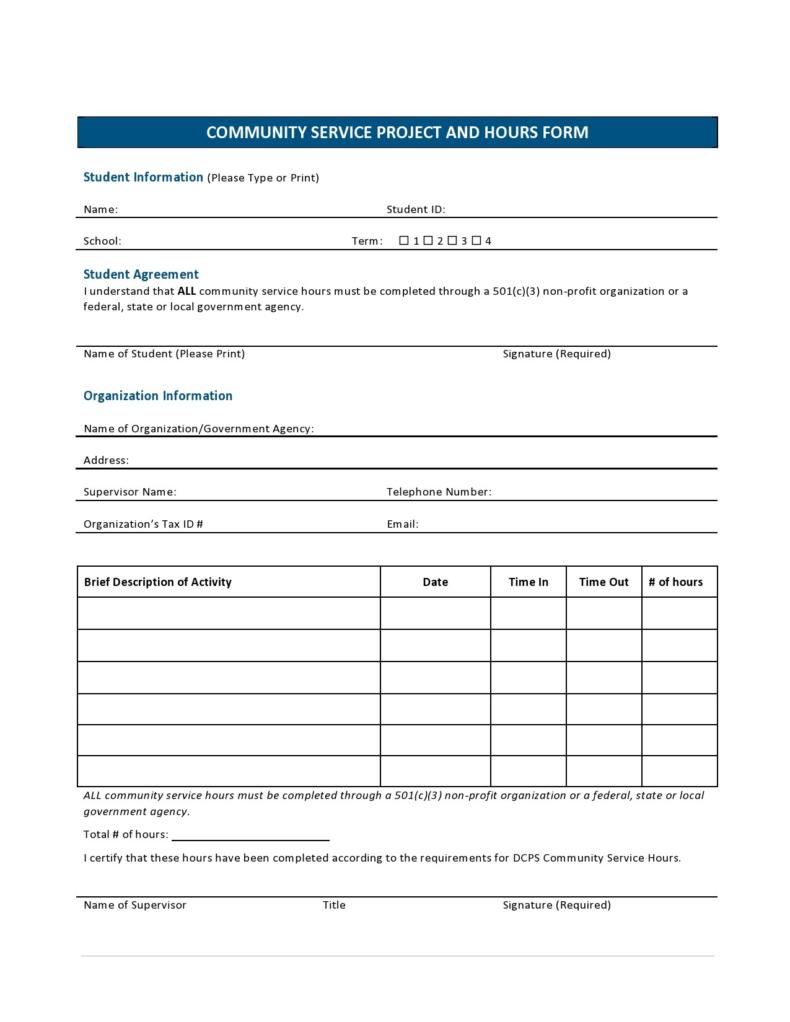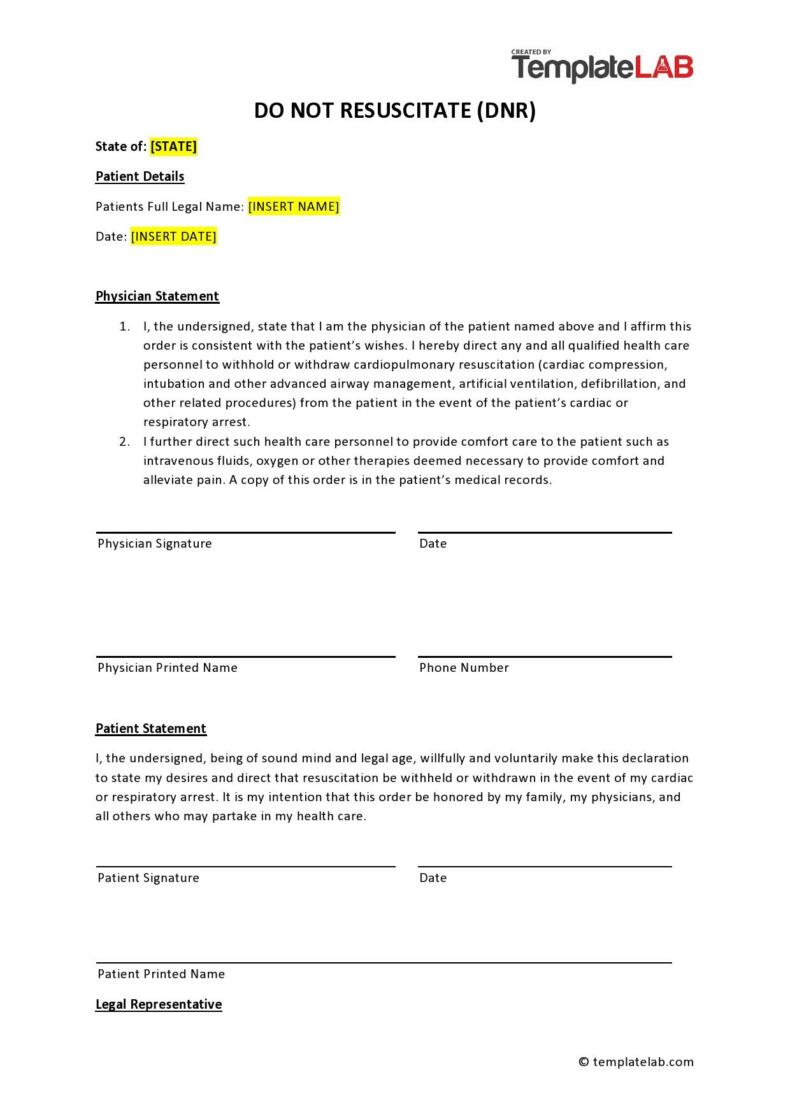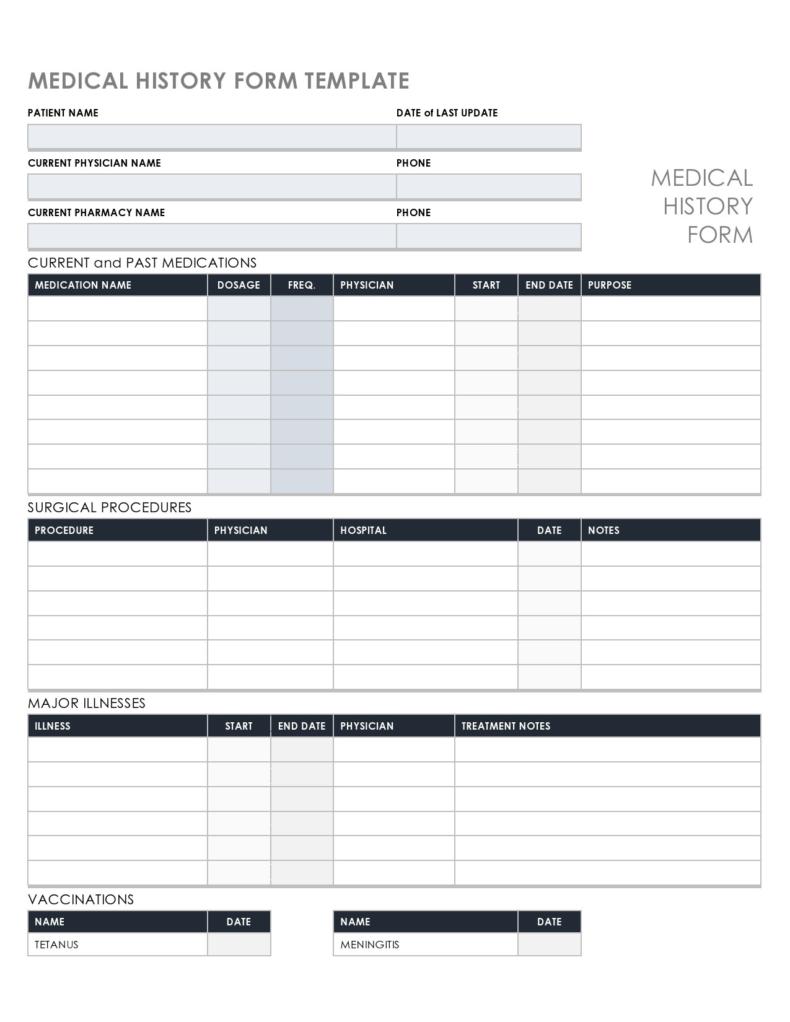A living will form can be the right solution for those who want to leave specific directives for healthcare treatment and care in emergency situations. This document outlines what course of action can be taken when you are in a situation where you are unresponsive, such as a coma. The living will form that you fill out or create will outline what can be done to care for your needs and which conditions should lead to an end to your pain or management protocols.
This can be a hard document to have to consider writing, but it can be really helpful if you find yourself in a situation where you cannot advocate for yourself any longer. This is the kind of document that takes the burden of decision-making off your loved ones and allows healthcare staff to provide exactly as much or as little supportive care as you wish in certain circumstances.
Table of Contents
- 1 Living Will Templates
- 2 What is a living will?
- 3 Printable Living Will Forms
- 4 What do you write in a living will?
- 5 Advance Directive Forms
- 6 How is a living will different from an advanced directive?
- 7 Living Will Examples
- 8 How is a medical power of attorney different from a living will?
- 9 Can I write a living will without a lawyer’s help?
- 10 Free Living Will Templates
- 11 Living Will Documents Can be Key to Your Medical Demands Being Met
Living Will Templates
What is a living will?
Living wills are often joined with a couple of other important documents per state requirements:
- Advanced directives. These documents explain what kinds of medical care you are willing to have done for yourself if you are in a coma or some other situation where you cannot advocate for yourself. This document outlines whether or not you want life-saving treatment to be performed, and it can also indicate if you wish to be placed on life support or not. This part of the living will is what allows healthcare staff to provide the exact kind of care that you want to have given to you in this situation.
- Medical Power of Attorney. This document is used to allow an agent to make medical decisions on your behalf. This person can determine what treatment you are given and can make medical decisions for you for things that are not laid out by the advanced directive.
These two documents inside of the living will make medical situations easier to navigate and help to be sure that your medical care is handled just the way that you want it to be if you should not be able to speak for yourself.
Living wills can vary in design by state. These are not the same as some other forms that are sometimes confused with a living will: - A Do Not Resuscitate Form. This form is used to tell medical staff not to perform resuscitation to bring you back if you have stopped breathing.
- Last Will and Testament. The last will and testament is used to disperse your assets after your death. Your living will is meant to make sure that your medical wishes are followed while you are living. It cannot be used once someone passes away. The living will template or living will examples that you have probably used to help draft your document have likely made it clear that this will is used to be sure that your wishes related to life support, organ donation, surgeries, ventilation, and dialysis are met.
Printable Living Will Forms
What do you write in a living will?
While there are many examples and printable living will forms out there to use, you might want to just create your own living will. This can be an easier process than you might think. You should check on the requirements for living wills in your state before you assume that you can draft this form in just the way that the examples you are looking at have done.
1. Treatment Preferences
This is the section where you indicate what you want to have done for your care if you are in a situation where you have been terminally injured or when you have a terminal illness that has led to a decline that has put you into a coma or an unresponsive state. You will indicate in this part of the document what surgeries, procedures, and other kinds of care can be done to take care of you. Medical staff and family members cannot authorize any care that is not listed in this part of the document.
You can also indicate what you want to be done if you are in a vegetative state. This can mean stating a set period of time that you are willing to be on life support before a final decision is made to end the support, or you can even indicate that you do not want to be given this kind of support. Each choice that you make will give the doctors treating you the power to work with the family to take action, which can help to prevent confusion and legal struggles between family members and treatment staff with regard to your care.
You can always decide against the life-saving treatment of any kind as well, and your living will can be used to enforce this wish, even if family members do not agree.
2. Non-Medical Concerns
Your living will is different from the DNR that you might have signed or an advanced directive that you might have in place. You can also use this document to indicate what you want to be done about funeral arrangements, spiritual concerns, and even organ donation or use of your body for science. When you indicate that you are willing to allow your body to be used for organ donation or for science, you will also be consenting to allow medical staff to keep you on life support until such time as these processes can be completed.
3. Guidelines for MPOA
If you decide that you want to have an agent who is a healthcare representative, you can give them medical power of attorney. This will allow the person to execute and enforce your living will, and it can also allow this person to act on your behalf without the permission of anyone else who is involved in the situation. This is not always something that is granted, and it is easy to see how this could be a problematic amount of power to grant to a single person. However, there are situations where this is necessary, and you can include this information in your living will if you are afraid that your will is not going to be executed as stated.
4. Witness and Notary Signatures
Because of the nature of this kind of will, it will require witness signatures as well as a notary to be present when everyone named in the document signs it. This is one of the key aspects of making a living will, and if you do not handle this part of the process correctly, you will not have created a legally binding living will. There are some people who cannot act as witnesses, and you need to be aware of this limitation before you handle this part of the document.
Your witnesses cannot be anyone who will inherit part of your estate, someone who is named in your last will and testament, or anyone who is related by blood or marriage. This is mandated in an effort to make sure that no one has been coerced into creating this document and to be sure that it has been properly looked at by third parties who are not going to gain anything from the document’s creation.
Advance Directive Forms
How is a living will different from an advanced directive?
It might not seem like there is a material difference between the living will and the advanced directive that is contained within the living will. However, there are some key differences between the documents. The living will that you have created will not only speak about your medical care and who can make decisions for you in your final hours, but it will also make it clear that you expect certain kinds of treatment for your body after you have passed, and it will outline other requirements that you want to have taken care of if you should be in a state where you cannot speak for yourself or make your own decisions.
The advanced directive is aimed at allowing medical staff to have some guidance about your care if you should end up in a coma or a vegetative state. The advanced directive that you have created gives medical care professionals the right to care for you as you have stated that you want to be cared for, even if your family is not happy with the things that you have laid out in your living will. This can be important for medical care teams so that they can offer the intended amount of care without being roadblocked by families who do not agree.
There are often lots of struggles over these kinds of decisions within families, and medical care staff are always seeking to be allowed the opportunity to care for their patients without fear of legal action being taken against them. This is why the advanced directive should be created alongside the living will that you have drafted. These two documents work in tandem to protect your rights if you cannot speak for yourself.
Living Will Examples
How is a medical power of attorney different from a living will?
The medical power of attorney document is made to allow a specific person the right to make medical choices on your behalf. This can be very useful if you are aware that your next of kin will not agree with your choices about what kinds of treatment you want to have should you end up in a coma or another unresponsive state. It can be hard for families to let go of someone who has been sick, and some family members might want to prevent the kind of treatment that you have requested in your living will and your advanced directive.
The appointed medical power of attorney agent will simply make sure that your living will and your advanced directive are followed correctly. The MPOA that you designate can be anyone that you wish, and it does not have to be someone who is related to you. You might pick a friend or a medical care person who you trust to make these choices and to take care of your needs as stated by your living will and other end-of-life documents.
Can I write a living will without a lawyer’s help?
Yes, you can write your own living will. Just be sure that you verify the state-specific language and requirements for the document before you do so. You want to be sure that you are creating a document that can be used to enforce your wishes at the end of your life, and you do not want to end up with a document that cannot be used when you need it most. There are also lots of different details that you need to consider related to care when you are not able to advocate for yourself, and you should think about all of these things carefully before you create your living will.
Free Living Will Templates
Living Will Documents Can be Key to Your Medical Demands Being Met
While no one wants to have to think about what they want to have done for themselves if they should end up in a coma or some other vegetative state, this kind of situation can happen to anyone. You might not want your family to be making tough choices on your behalf, or you might be aware that your loved ones would make choices that would not reflect your actual desires. This is why a living will and the accompanying documentation can be a key aspect of making sure that your final wishes are handled as you would want them to be, even if you cannot state your desires at the time.
Making sure to have a living will on file can help alleviate the stress of medical decision-making for the family if you should be unable to speak for yourself or make choices on your own, and you can also ensure that your body is used for science or for organ donation if you wish. This is one of the key documents that you should consider drafting if you are worried about what will happen to you if you should end up in a coma at some time in the future.

